Thunder’s Game 1 rout leaves Mavericks at a painful loss

Get all of Rob Mahoney’s columns as soon as they’re published. Download the new Sports Illustrated app (iOS or Android) and personalize your experience by following your favorite teams and SI writers.
NBA regulars are conditioned to expect the impossible of Mavericks coach Rick Carlisle, whose preparation and tactics have turned the tide in many a playoff series. The challenges of Dallas’s latest, however, seem beyond him. There was no scheming around the dominance of the Oklahoma City Thunder in Game 1. Within two minutes, OKC had sprinted away to a 9–0 advantage. Dallas sputtered along to make just 26.2% of its field goals in the opening half and never recovered. So vast was the disparity between the two teams Saturday night—a margin crystallized by the 108–70 final score—that the opening tip made for the game’s most competitive moment.
• MORE NBA:SI’s NBA playoffs predictions | Western Conference preview
Oklahoma City could hardly have been more convincing in the first step of its high-stakes playoff run. The offense was as prolific and efficient as we’ve come to expect. Kevin Durant (23 points, five rebounds, five assists) wasted no time in applying pressure with his drives. Russell Westbrook (24 points, 11 assists, five rebounds) took whatever he wanted in semi-transition, sprinting past Mavericks in the open court and setting up his teammates on the secondary break. When the game slowed, the discrepancy in size and high-end talent only became more apparent. Injuries made the 6'5" Wesley Matthews the Mavs’ starting small forward. With that positioning came the responsibility of covering the 6'11" Kevin Durant, who finished at the rim with ease and barely seemed to register Matthews’s presence when shooting jumpers over his contests. Inside, Enes Kanter (16 points, 13 rebounds) and the Thunder bigs corralled misses to further bury the Mavericks with second-chance points. Scarcity made every basket precious for Dallas. OKC, on the other hand, could scrounge up a few points whenever it needed by executing basic offense and cleaning up after itself.
Not that those putbacks and tip-ins were much needed. Dallas hasn’t been able to score consistently for months, even against the fluctuating lot of regular-season competition. A locked-in Thunder team exaggerated that disadvantage by keeping pressure on the Maverick guards and trusting in their rotations to get back to Dirk Nowitzki in time. Most teams that trend small in their lineups do so to create a point of leverage—some matchup in which either shooting or quickness affords opportunity. Dallas, which was short on wings to begin with and is missing forward Chandler Parsons, relies on three-guard lineups more out of desperation. Trios featuring a combination of Matthews, Deron Williams, an injured J.J. Barea (who tried to play through a groin strain but was ruled out at halftime), Devin Harris and Raymond Felton don’t gain any ground against the Thunder. None among them is explosive enough in their current form to beat OKC’s defense to the basket. None is enough of a pull-up threat to create offense from the outside-in. This turns a series of possessions into lost causes—whether by stalled action against longer defenders on the perimeter or hesitant, pump-fake-heavy drives.
In all, the Thunder held the Mavs to 13-of-34 (38.2%) shooting in the restricted area, according to NBA.com—a truly gruesome percentage. That kind of interior control allowed the Thunder to play aggressively at the three-point line (where the Mavs shot just 22.2%) by extension. Isolating Nowitzki (18 points on 15 shots) on the block was at times the only recourse for Dallas. That old standby worked in spots, though never to a degree or volume that could realistically keep pace with the Thunder’s onslaught.
PHOTOS: NBA championship rings throughout the years
NBA Championship Rings Through the Years
2017-18 Golden State Warriors
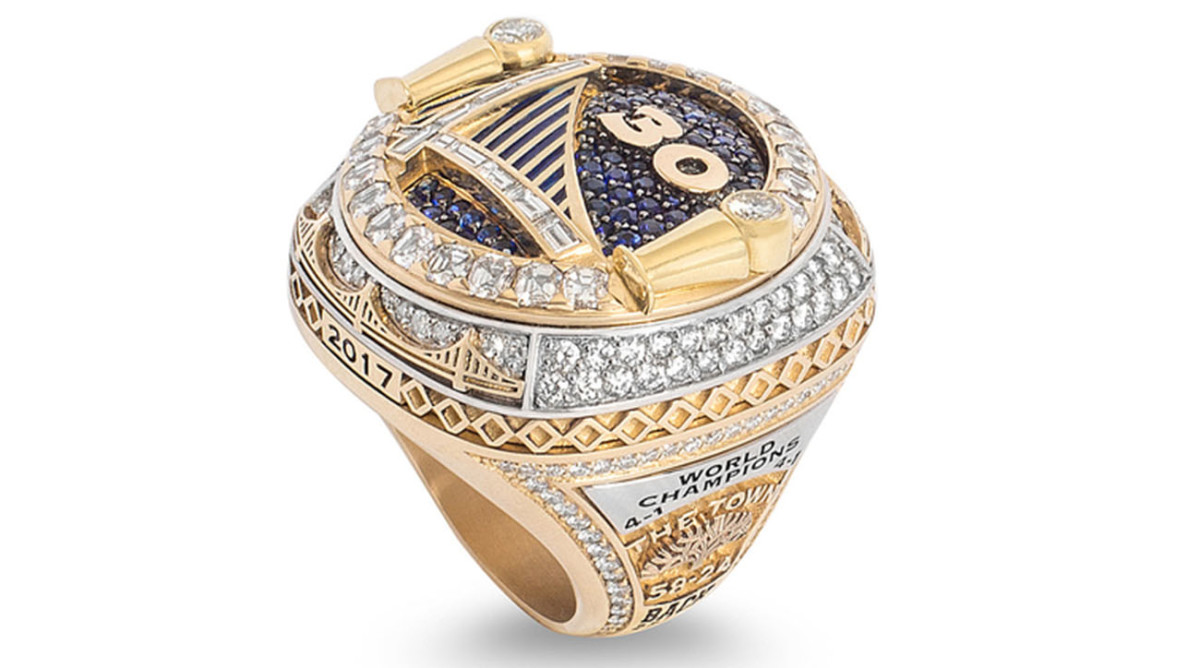
The Golden State Warriors swept the Cleveland Cavaliers to win their third title in four years. The team got reversible rings with 74 sapphries on one side of the ring. The 74 represents the total number of victories the team earned during the regular season and playoffs in bringing home the franchise's sixth championship.
2016-17 Golden State Warriors
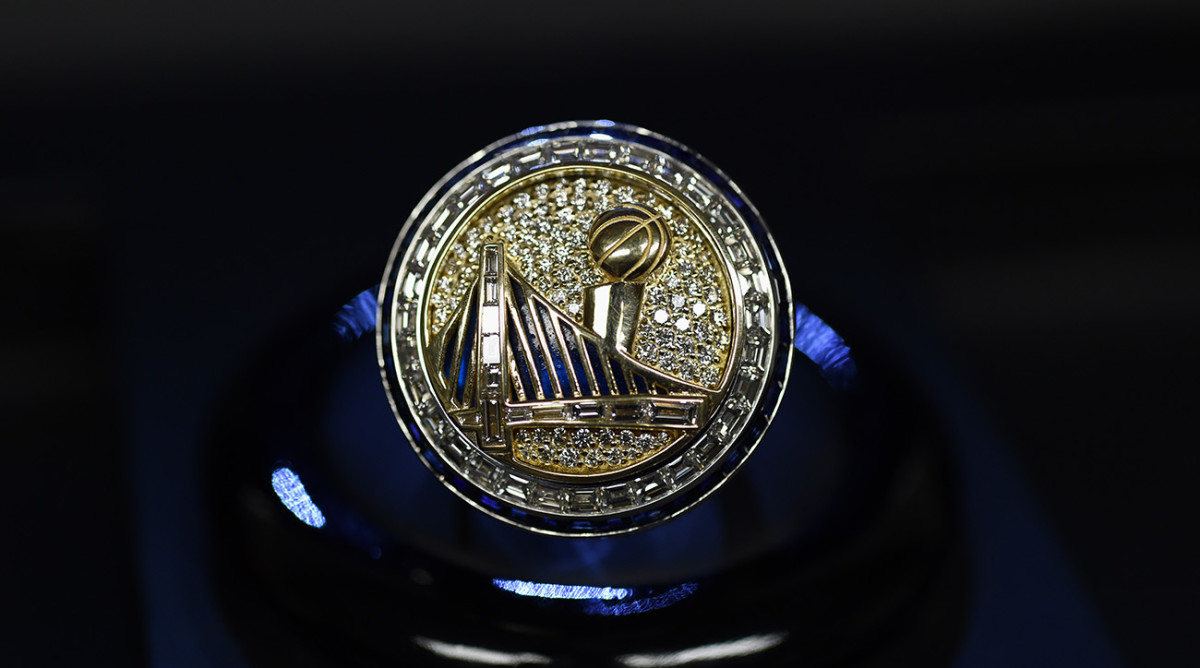
The Warriors beat LeBron James and the Cleveland Cavaliers in the 2017 NBA Finals to win their second title in three years.
2015-16 Cleveland Cavaliers
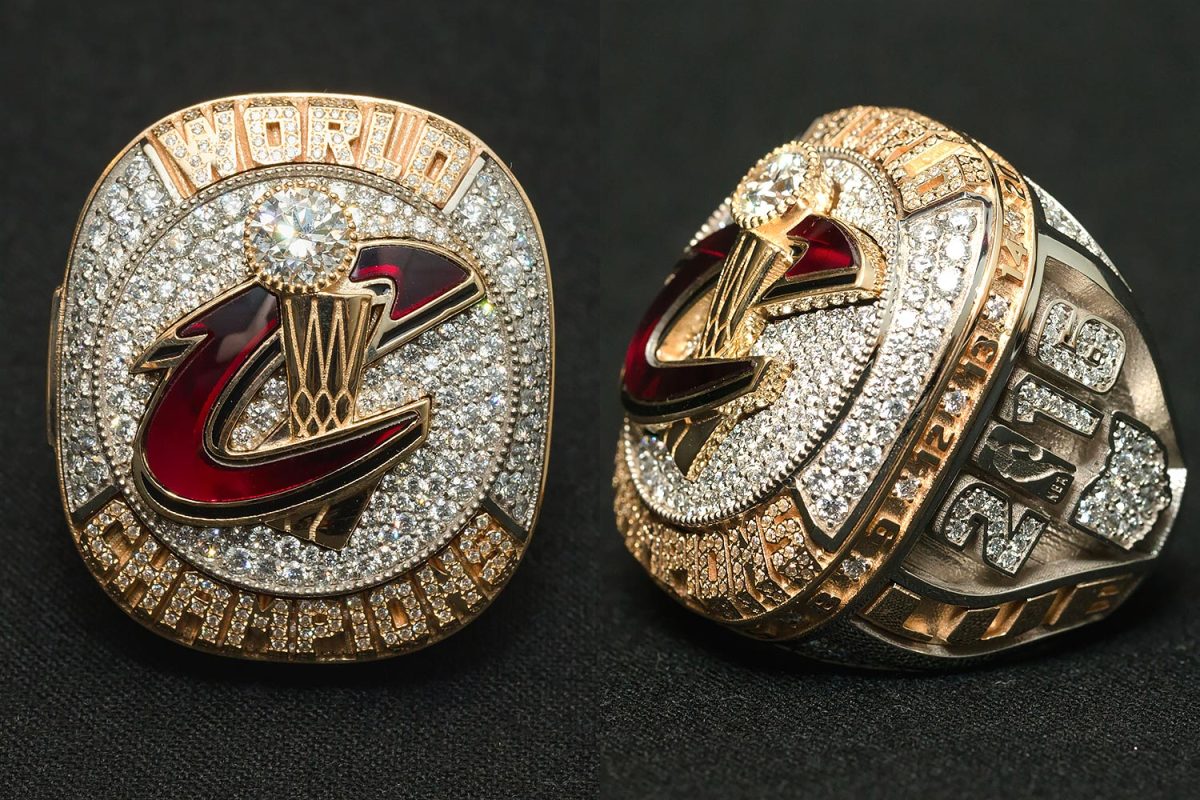
NBA Finals MVP LeBron James and the Cavs defeated the defending champion Warriors in seven games for these rings featuring the Cavaliers’ “C” wrapped around the Larry O’Brien trophy.
2014-15 Golden State Warriors
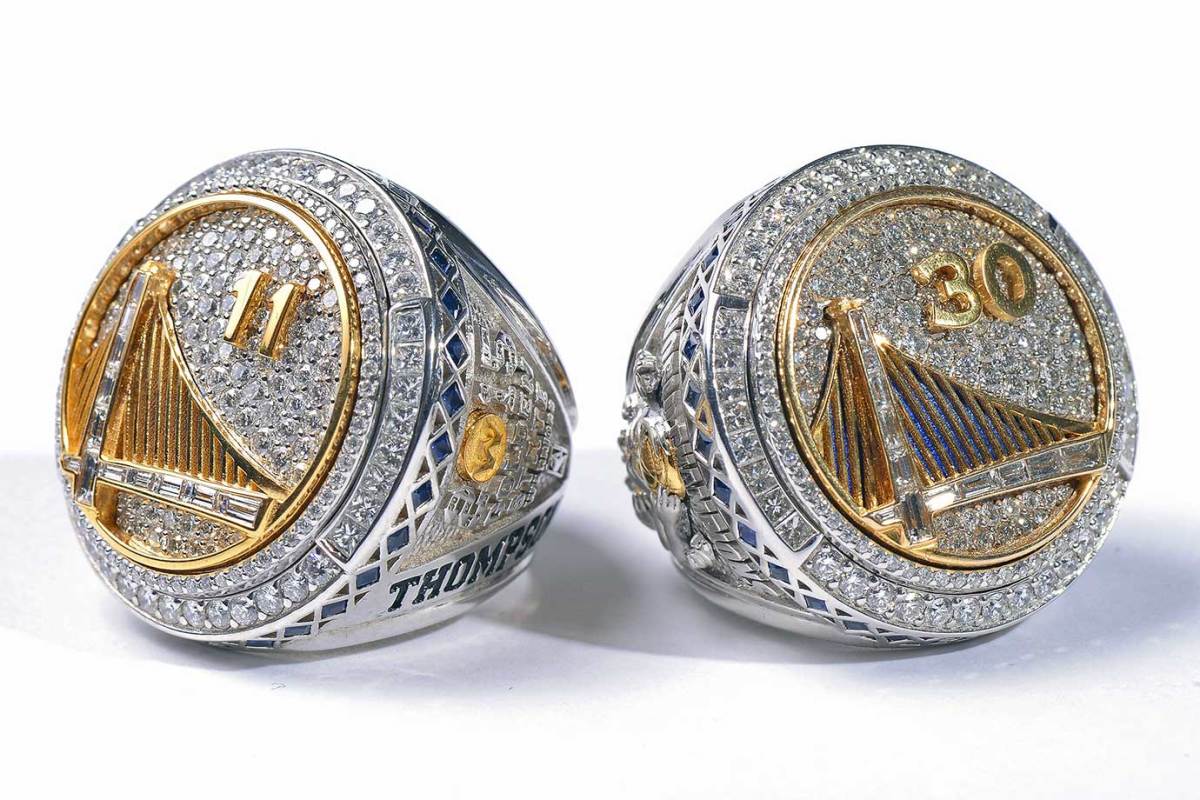
The Warriors took home these beauties after upending LeBron James and the Cavaliers in six games for their first title in 40 years.
2013-14 San Antonio Spurs
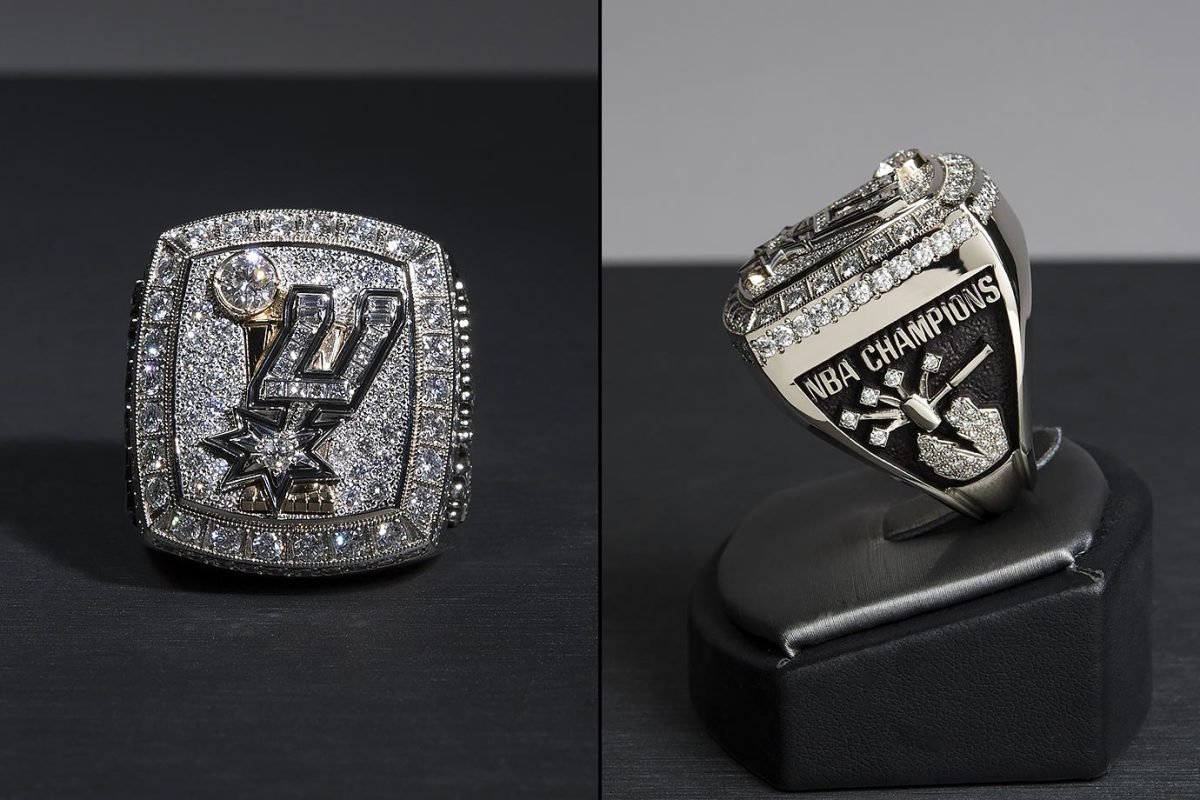
The Heat aimed to three-peat, but the Spurs had other ideas. Kawhi Leonard had a couple of breakout performances on his way to series MVP, and San Antonio ran away from Miami in five games.
2012-13 Miami Heat
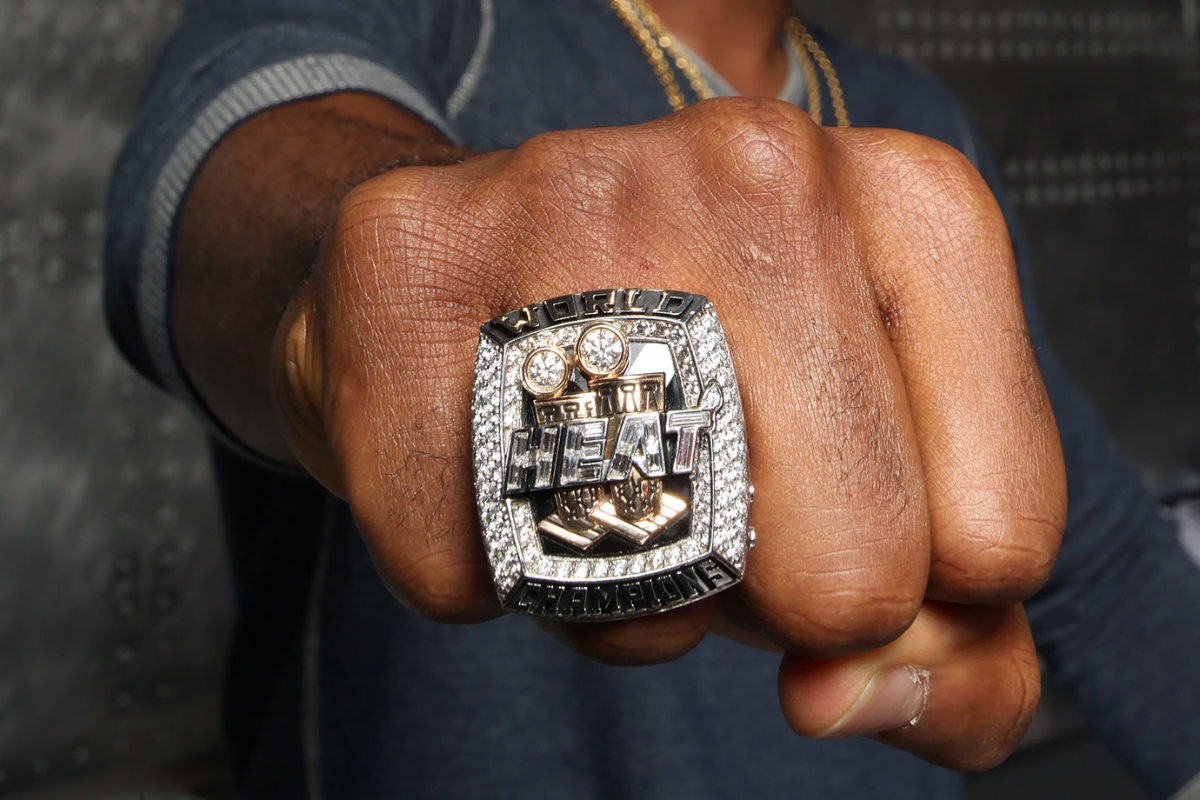
These rings would have never seen the light of day had Ray Allen not made one of the greatest shots in NBA Finals history. Thanks to Allen, the Heat rallied and defeated the Spurs in overtime in Game 6, and then won two days later to repeat as champs.
2011-12 Miami Heat
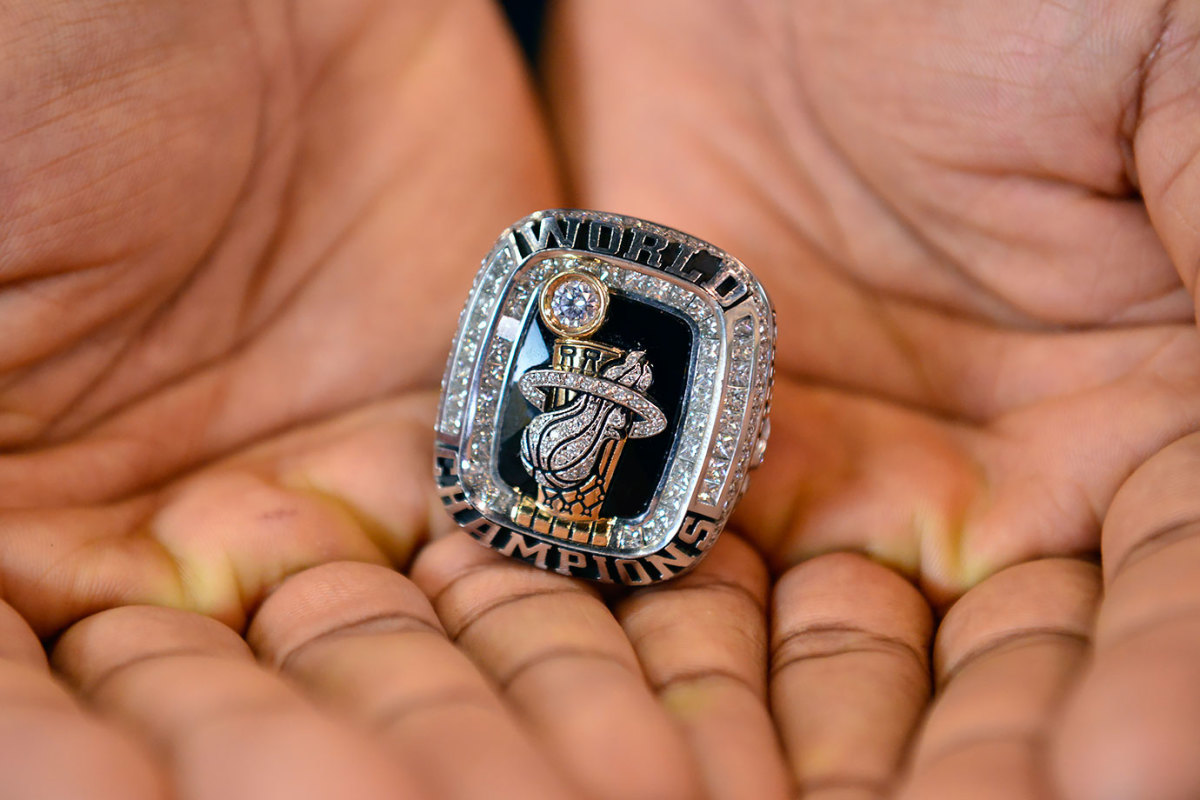
LeBron James got his first ring as the Heat overwhelmed the Thunder in five games. James averaged 28.6 points, 10.2 rebounds and 7.4 assists.
2010-11 Dallas Mavericks
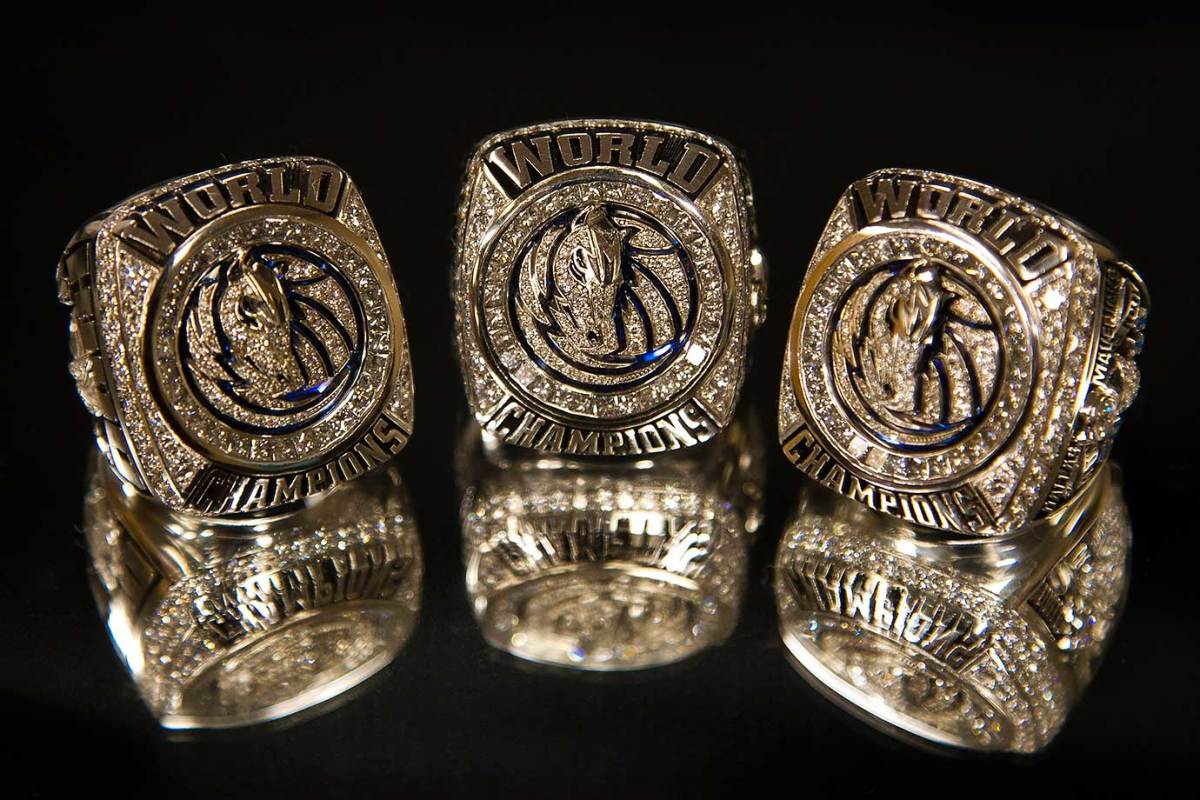
Dallas won three straight games to erase a 2-1 deficit and squash the newly formed Miami Big Three's title dreams. This was also the Mavericks' first NBA title in franchise history.
2009-10 Los Angeles Lakers
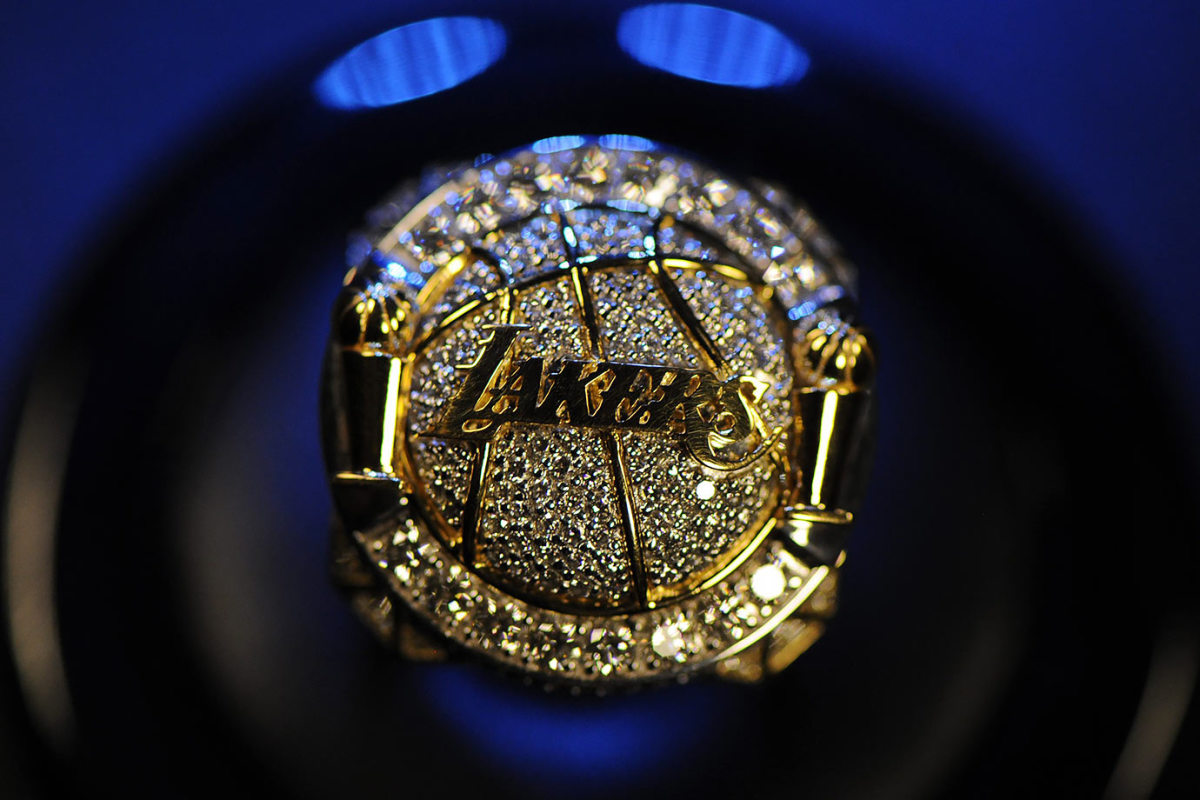
The Celtics held a 3-2 lead in this series, but the Lakers took care of business at the Staples Center in Game 6 and 7 to repeat as champs. This was the fifth and final set of rings for Los Angeles with Kobe Bryant.
2008-09 Los Angeles Lakers
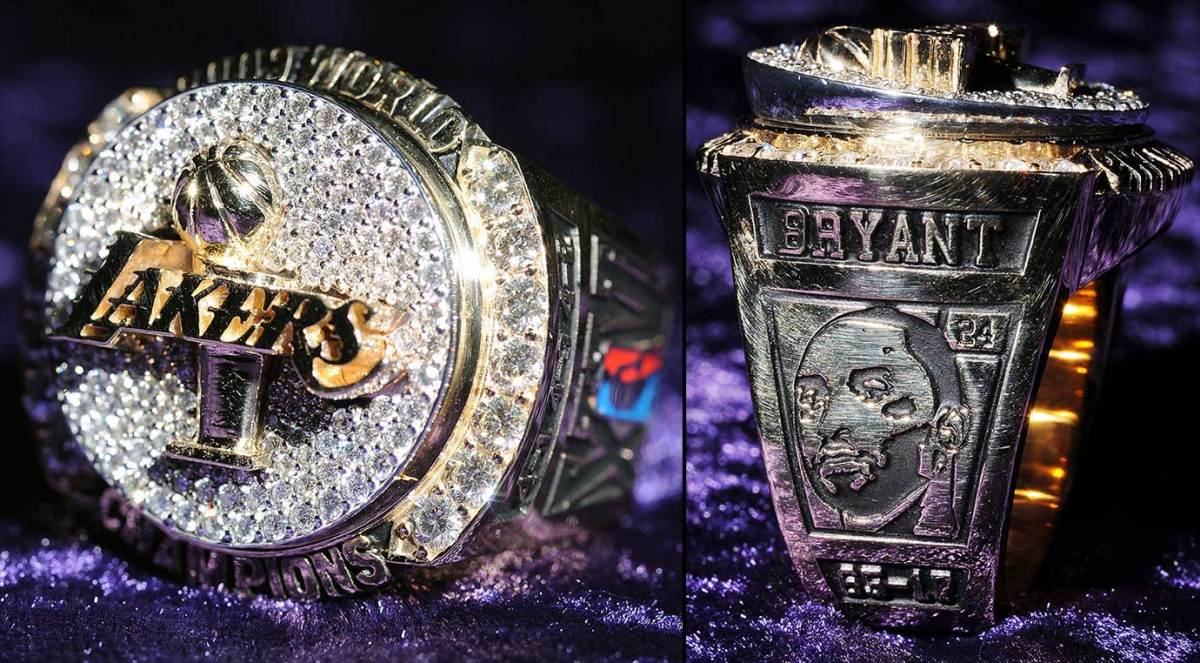
The Lakers survived in a pair of overtime battles and then pulled away from the Magic in Game 5 to win their first NBA title since 2002's three-peat. Kobe Bryant won series MVP with averages of 32.4 points and 7.4 assists.
2007-08 Boston Celtics
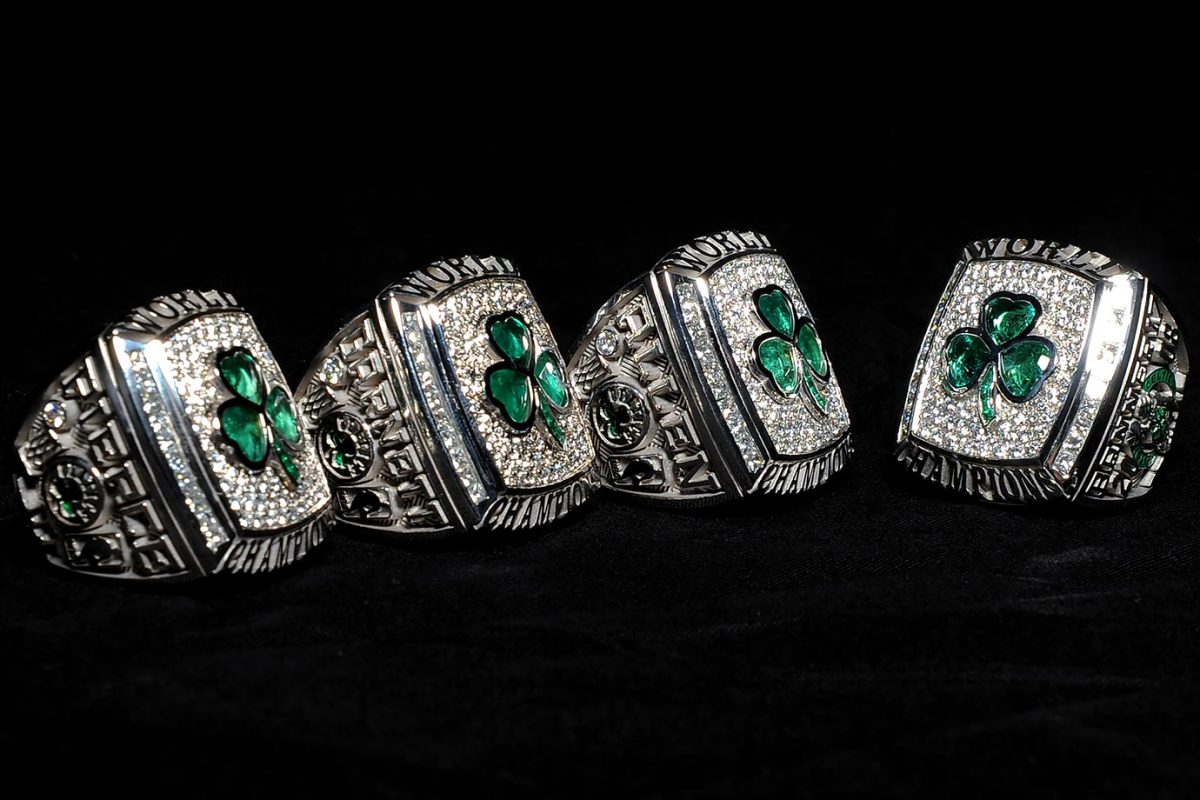
Acquiring Kevin Garnett and Ray Allen during the off-season paid off quickly for Boston. In their first year, Garnett and Allen teamed up with Paul Pierce to defeat the Lakers in six games and bring the Celtics new jewelry for the first time since 1986.
2006-07 San Antonio Spurs
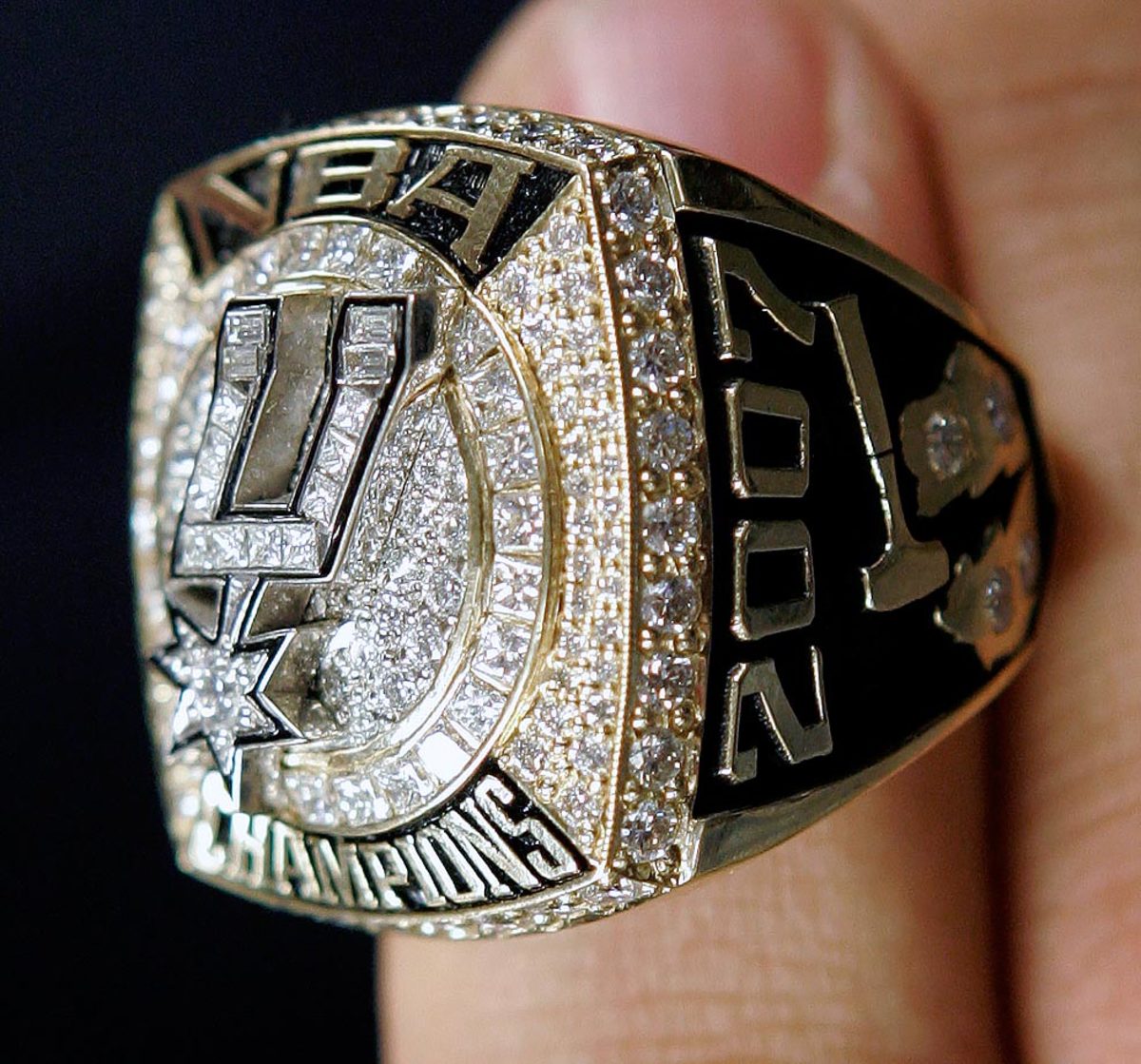
LeBron James' Cavaliers broke through to the finals, but they were no match for the Spurs, who completed the sweep for their third title in five years.
2005-06 Miami Heat
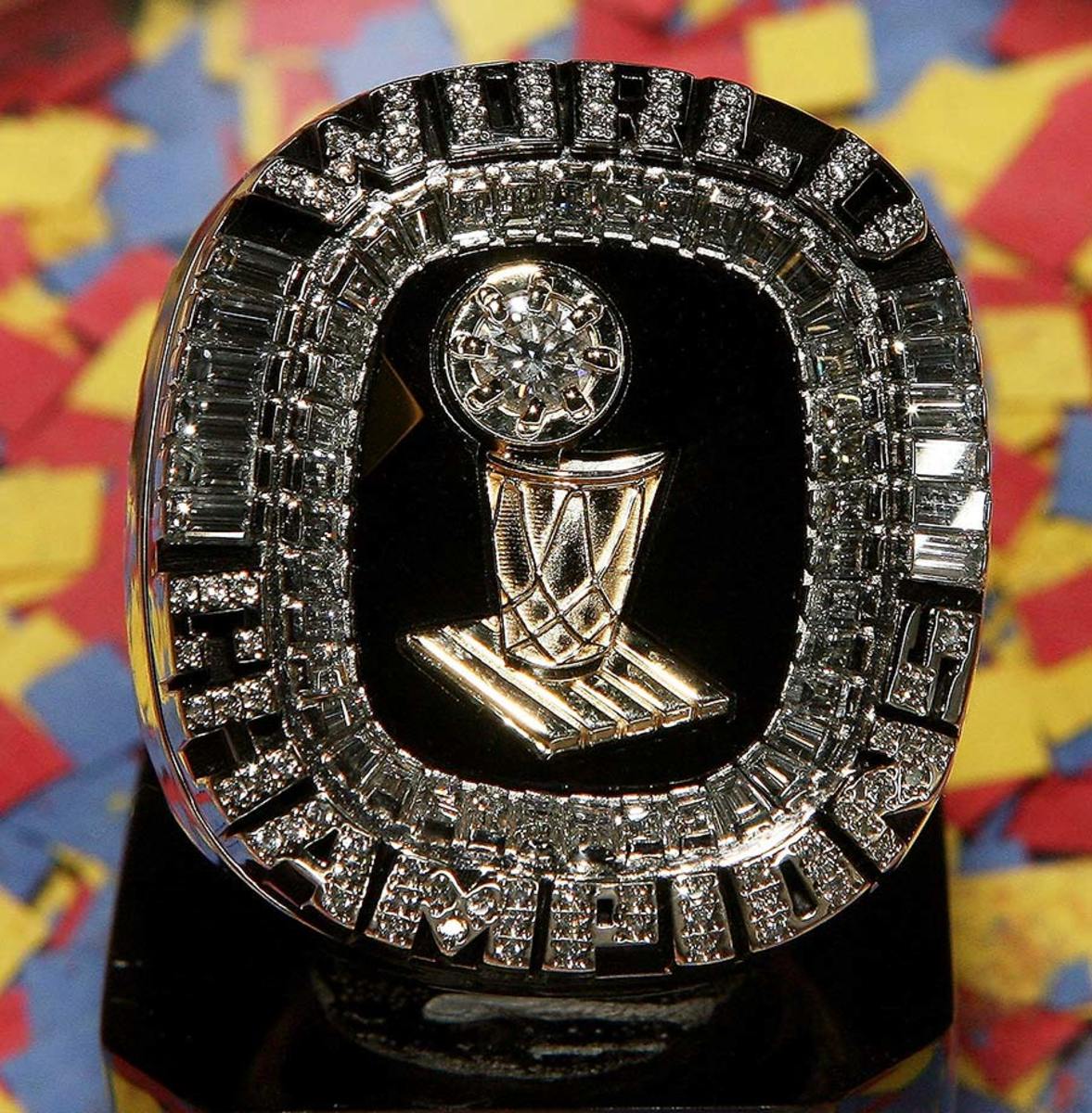
In their first-ever NBA Finals appearance, the Heat became the third team in league history to win a championship after trailing 0-2. Dwayne Wade averaged 39.3 points in the next four games as Miami won the series in six.
2004-05 San Antonio Spurs
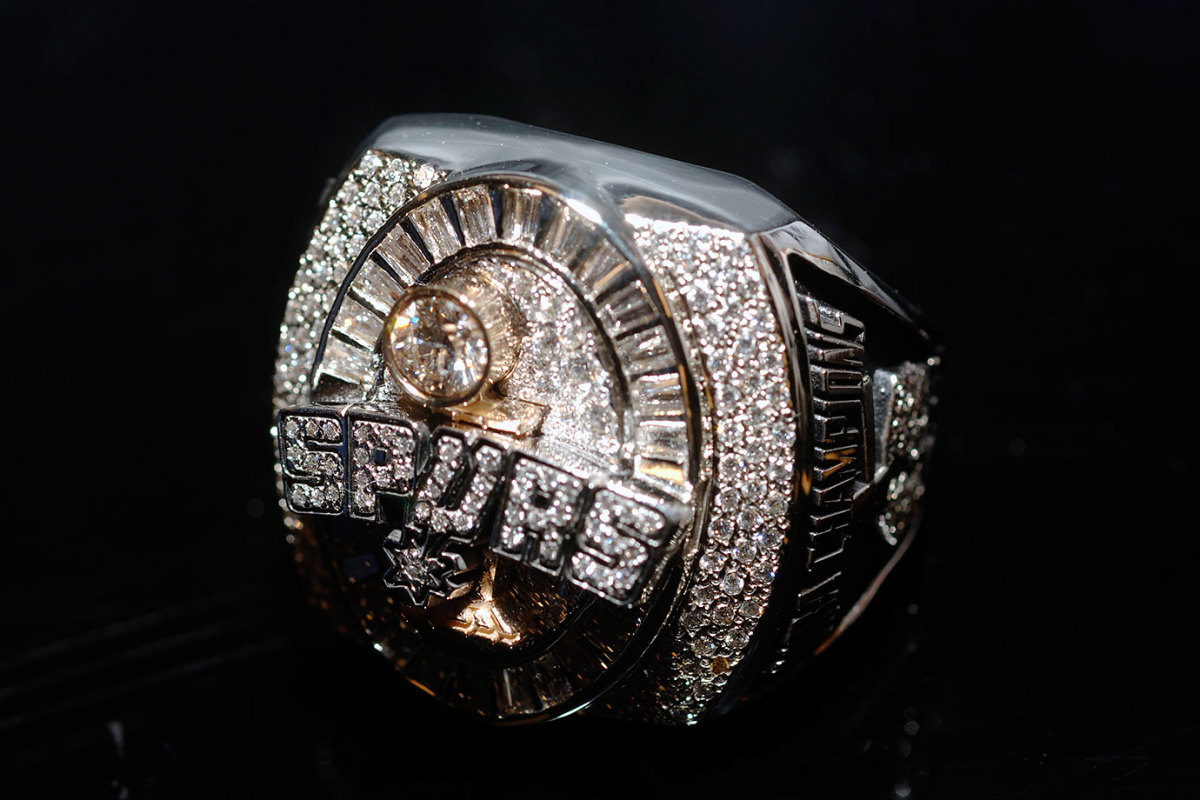
This series was almost as close as possible. The Spurs and the Pistons entered the fourth quarter of Game 7 tied, and Tim Duncan and Manu Ginobili led San Antonio in the fourth quarter to its third title under coach Greg Popovich.
2003-04 Detroit Pistons
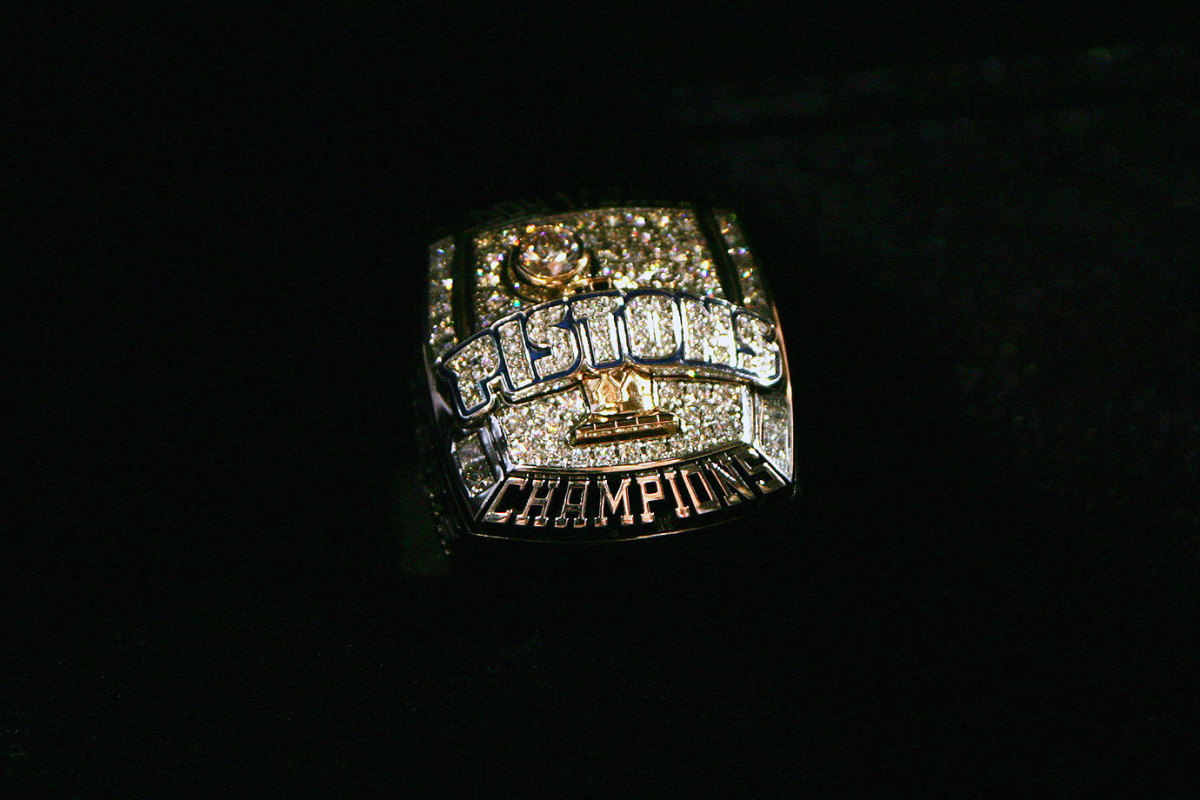
Larry Brown had an NCAA title ring, and a 4-1 victory over the Lakers gave the coach his first NBA championship ring. Brown remains the only coach to win an NCAA and NBA title.
2002-03 San Antonio Spurs
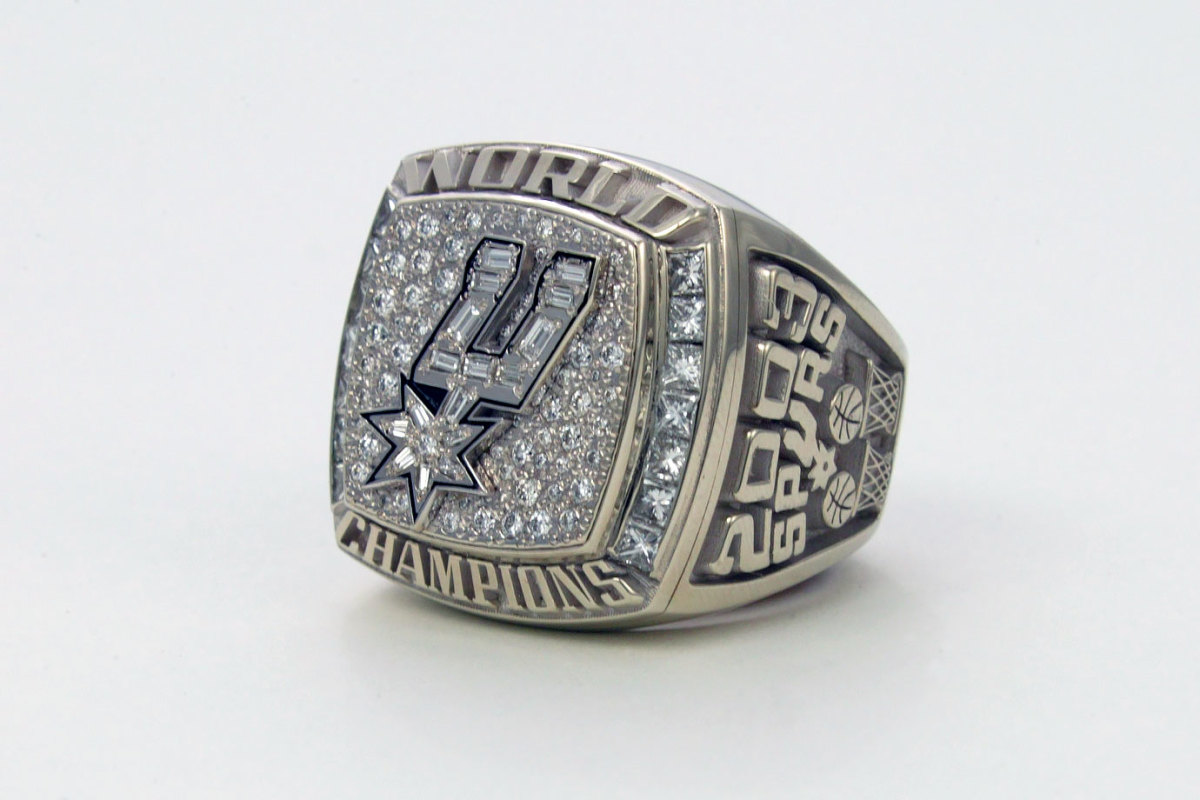
In one of the great all-time playoff performances, Tim Duncan fell barely shy of a quadruple double with 21 points, 20 rebounds, 10 assists and eight blocks in the series-clinching Game 6.
2001-02 Los Angeles Lakers
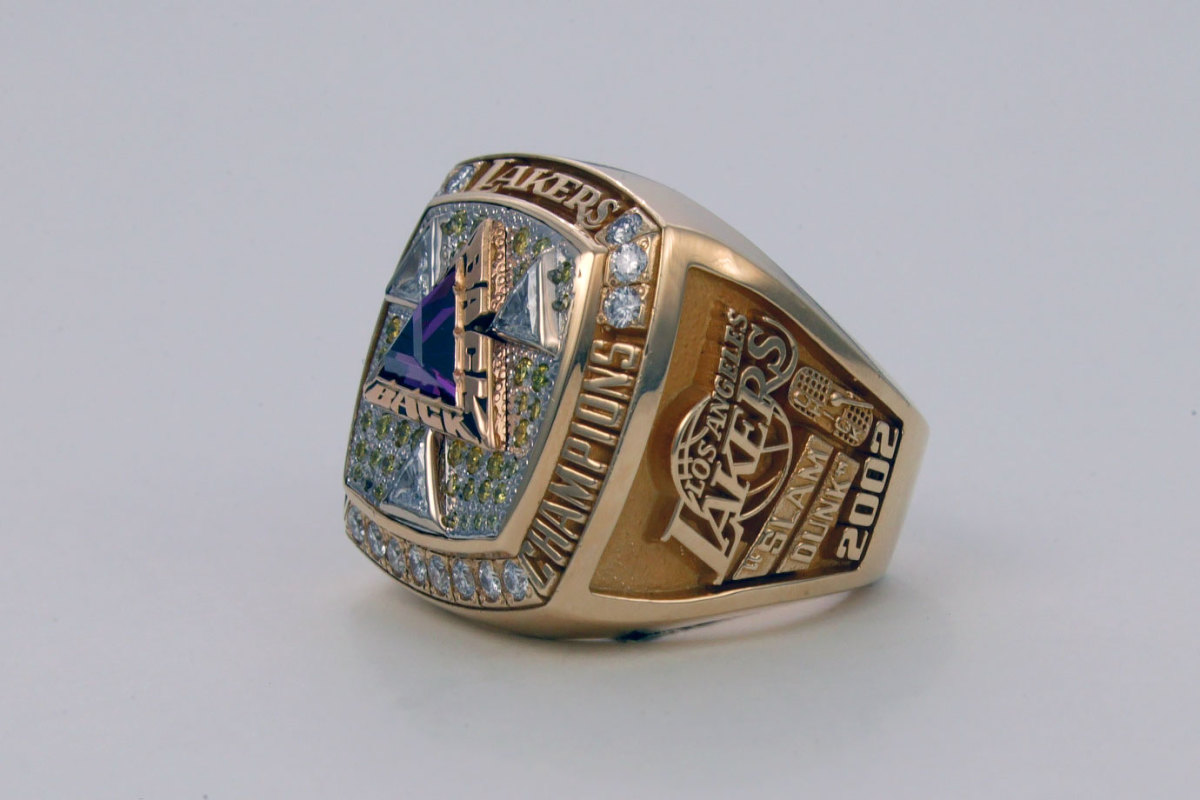
The Nets did not put up much resistance as the Lakers completed a 4-0 sweep for their third straight title, giving coach Phil Jackson his ninth NBA title in 12 seasons.
2000-01 Los Angeles Lakers
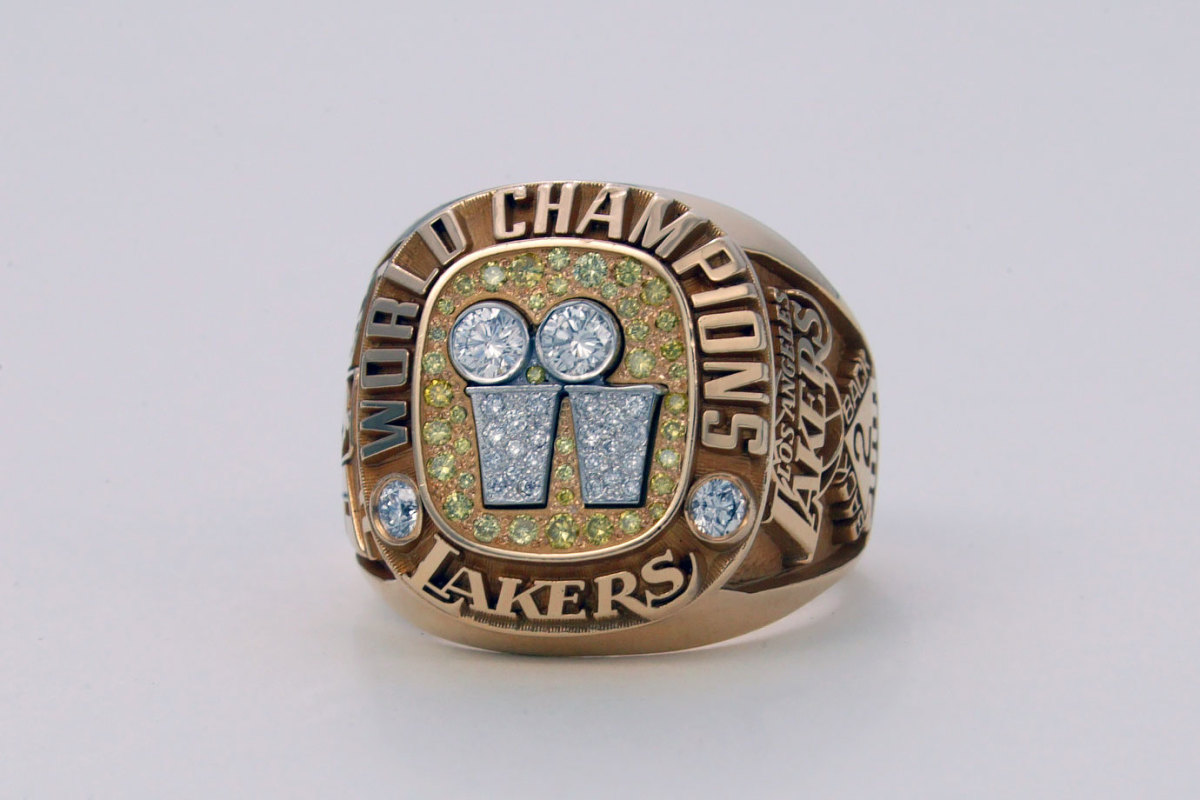
Allen Iverson carried the 76ers to a Eastern Conference title and Game 1 victory against the Lakers, but Kobe Bryant and Shaquille O'Neal were too much for The Answer. Los Angeles won the next four games, including three straight in Philadelphia, to win its second straight championship.
1999-00 Los Angeles Lakers
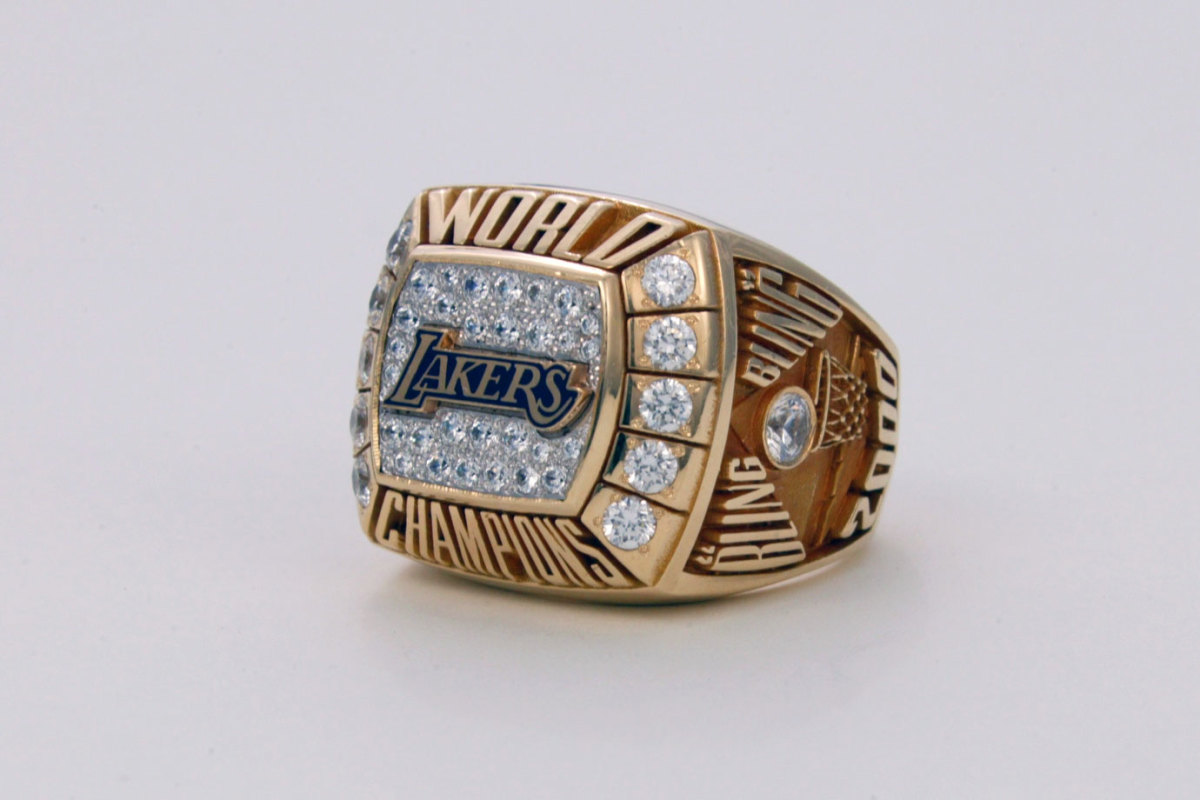
In his return to coaching, Phil Jackson guided the Lakers to a 4-2 series victory against the Pacers, coached by Larry Bird. Shaquille O'Neal averaged 36.3 points and 12.3 rebounds, earning his first of three straight Finals MVPs.
1998-99 San Antonio Spurs
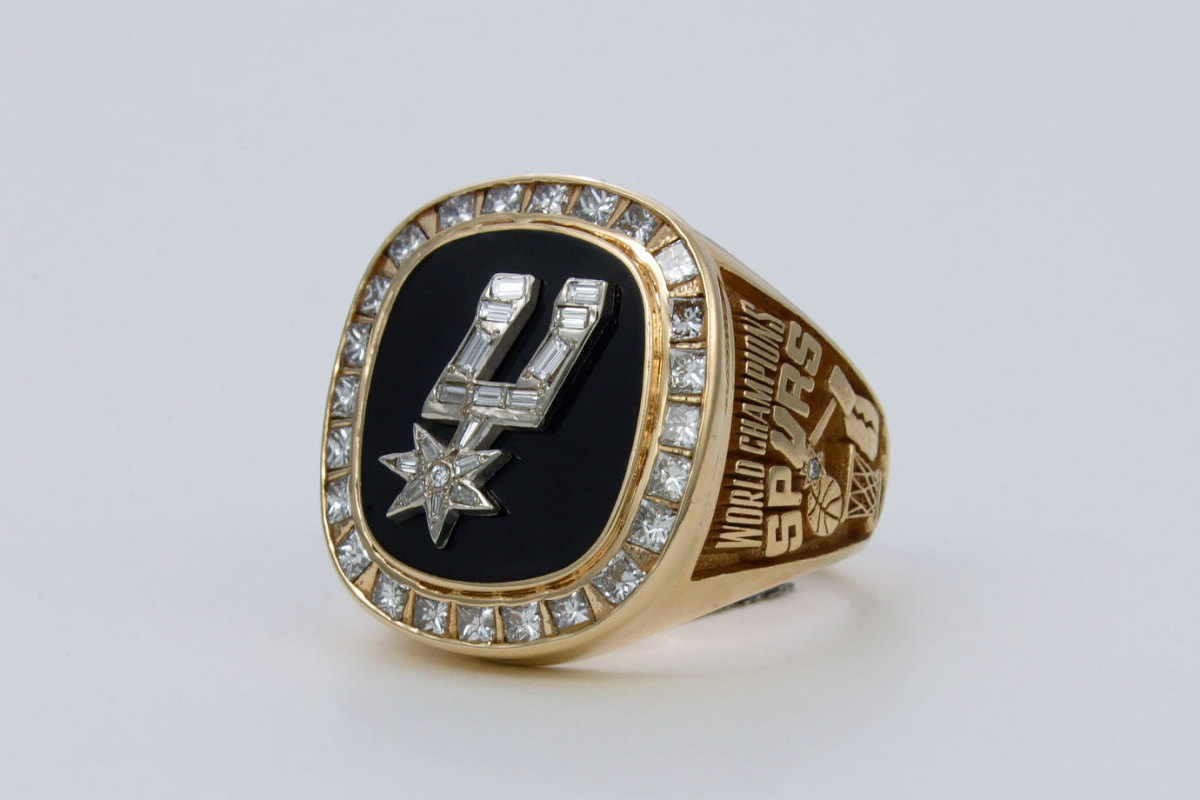
In a battle of dominant frontcourts, David Robinson and Tim Duncan bested Patrick Ewing and Larry Johnson as the Spurs defeated the Knicks in five games for their first NBA title.
1997-98 Chicago Bulls
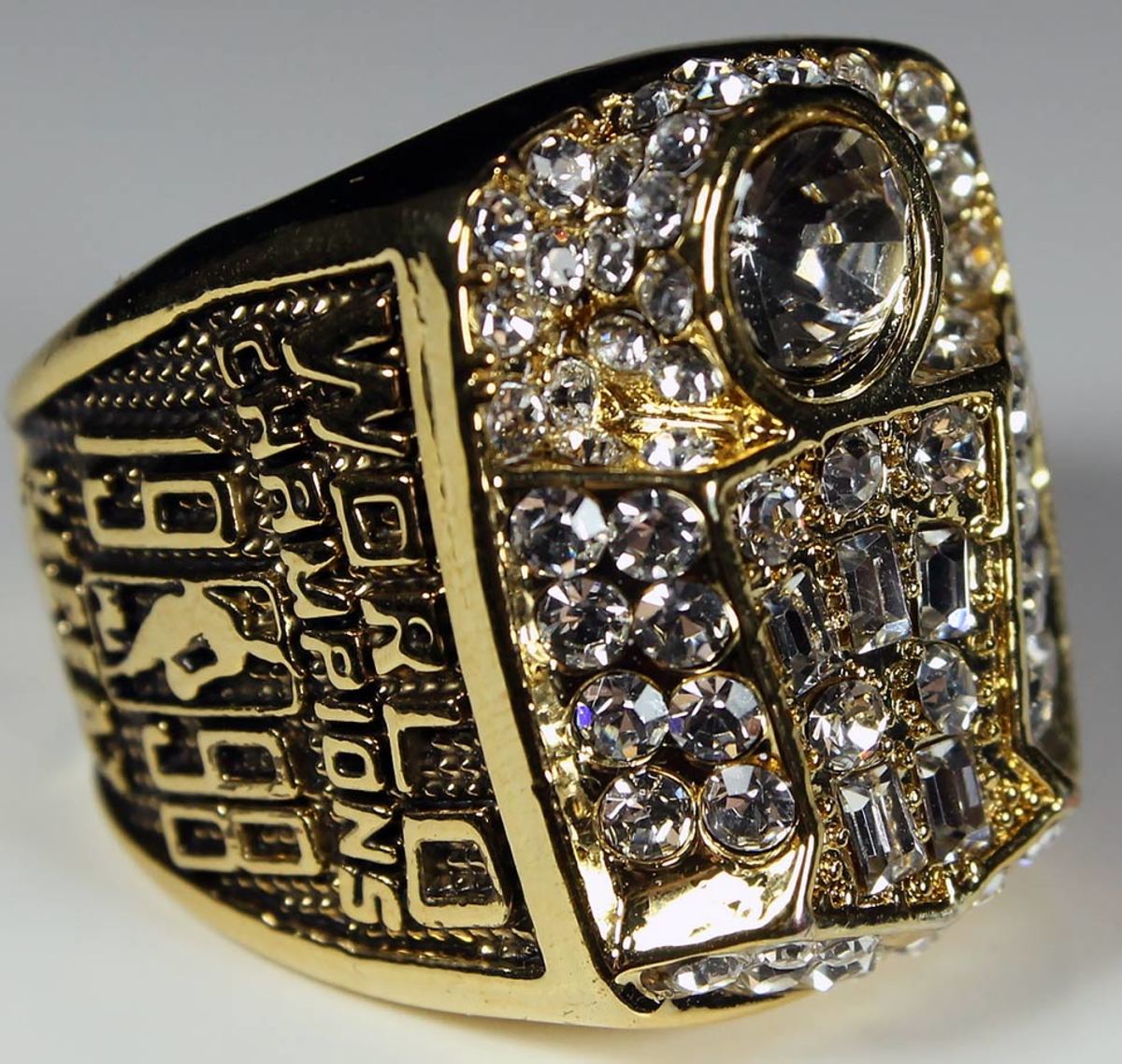
Michael Jordan's jump shot with 5.6 seconds remaining in Game 6 gave the Bulls their second three-peat of the decade. Since then, Chicago has no NBA Finals appearances and only one conference finals appearance.
1996-97 Chicago Bulls
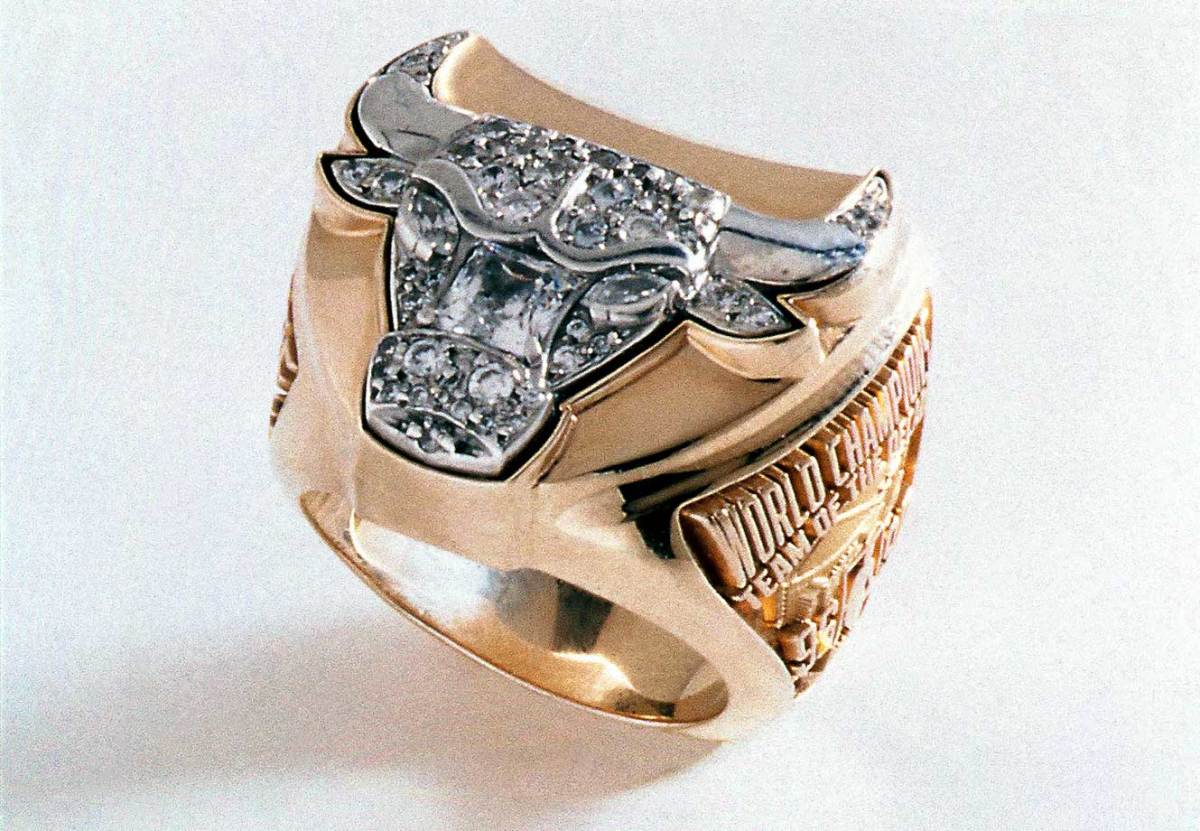
In a series featuring six Hall of Fame players, the Bulls defeated the Jazz in six games as Michael Jordan fought through food poisoning to lead Chicago to wins in Game 5 and Game 6.
1995-96 Chicago Bulls
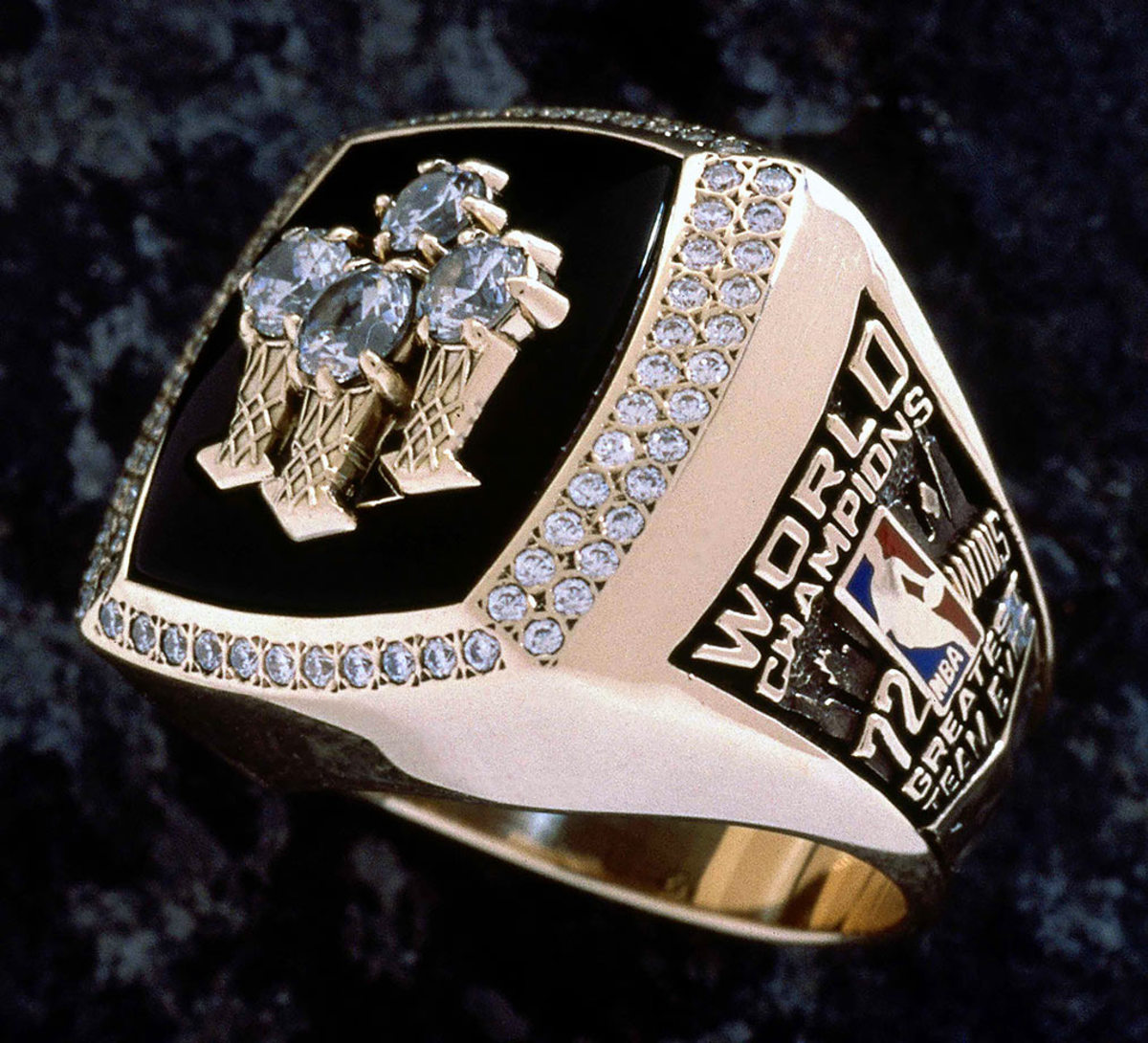
Dennis Rodman tied an NBA Finals record in Game 2 with 11 offensive rebounds against Seattle and then did it again in Game 6, the series clincher, but Michael Jordan was once again the no-brainer series MVP, averaging 27.3 points 5.3 rebounds and 4.2 assists.
1994-95 Houston Rockets
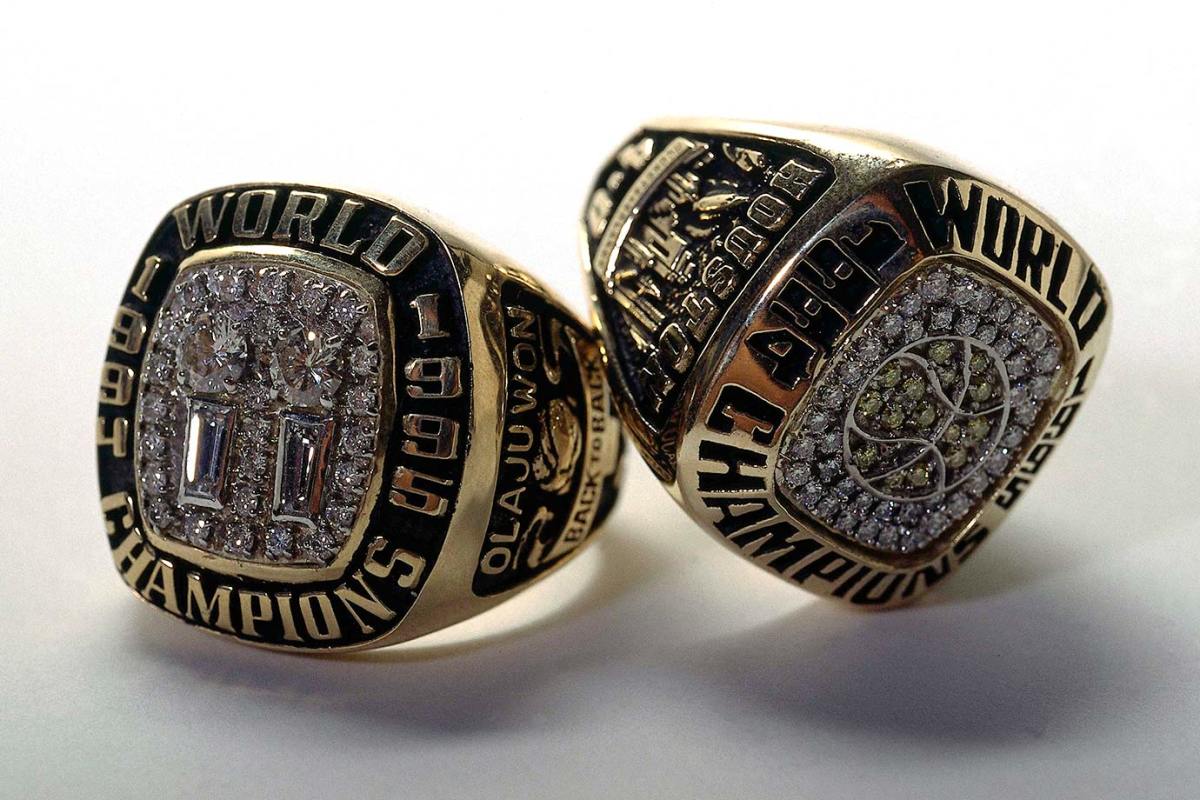
Hakeem Olajuwon taught young Shaquille O'Neal a few lessons in this series as the Rockets swept the Magic for their second consecutive NBA title. The Rockets were the first No. 6 seed to win a Finals series.
1993-94 Houston Rockets
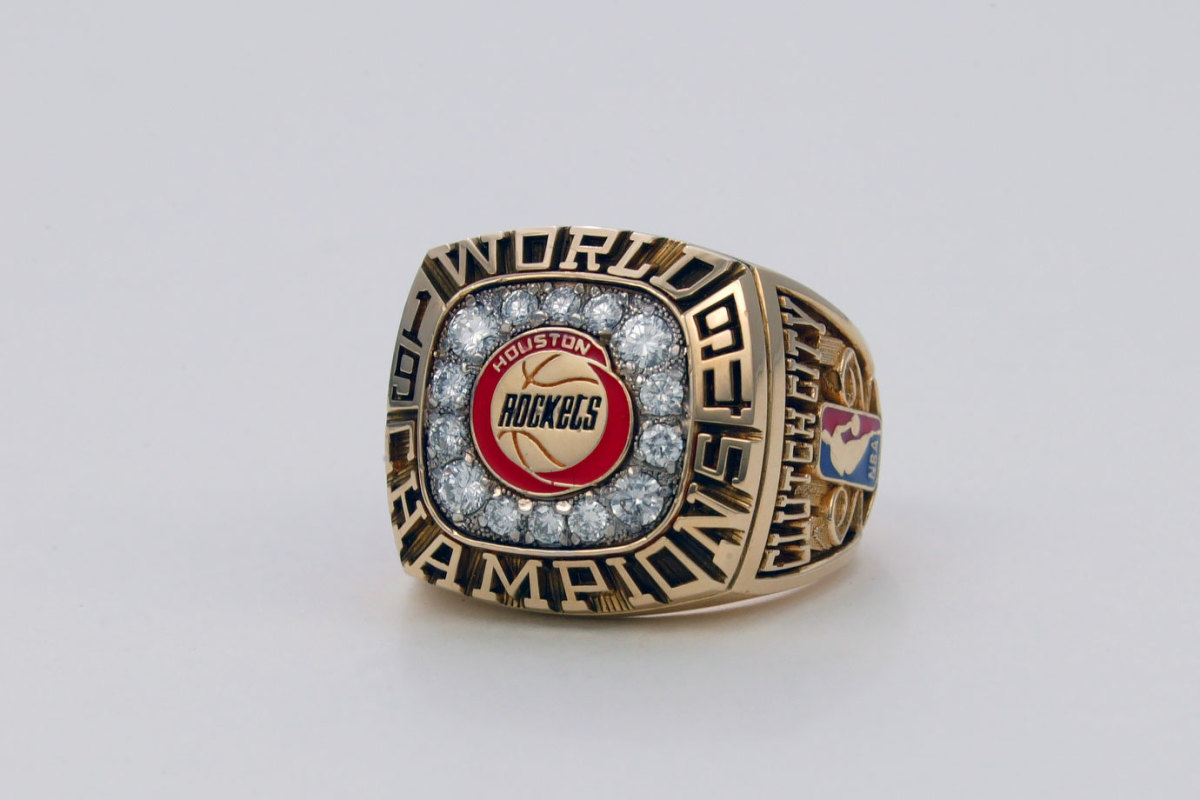
The Rockets ended a five-season title drought for the Western Conference as Hakeem Olajuwon charged victories in Game 6 and Game 7 in Houston.
1992-93 Chicago Bulls
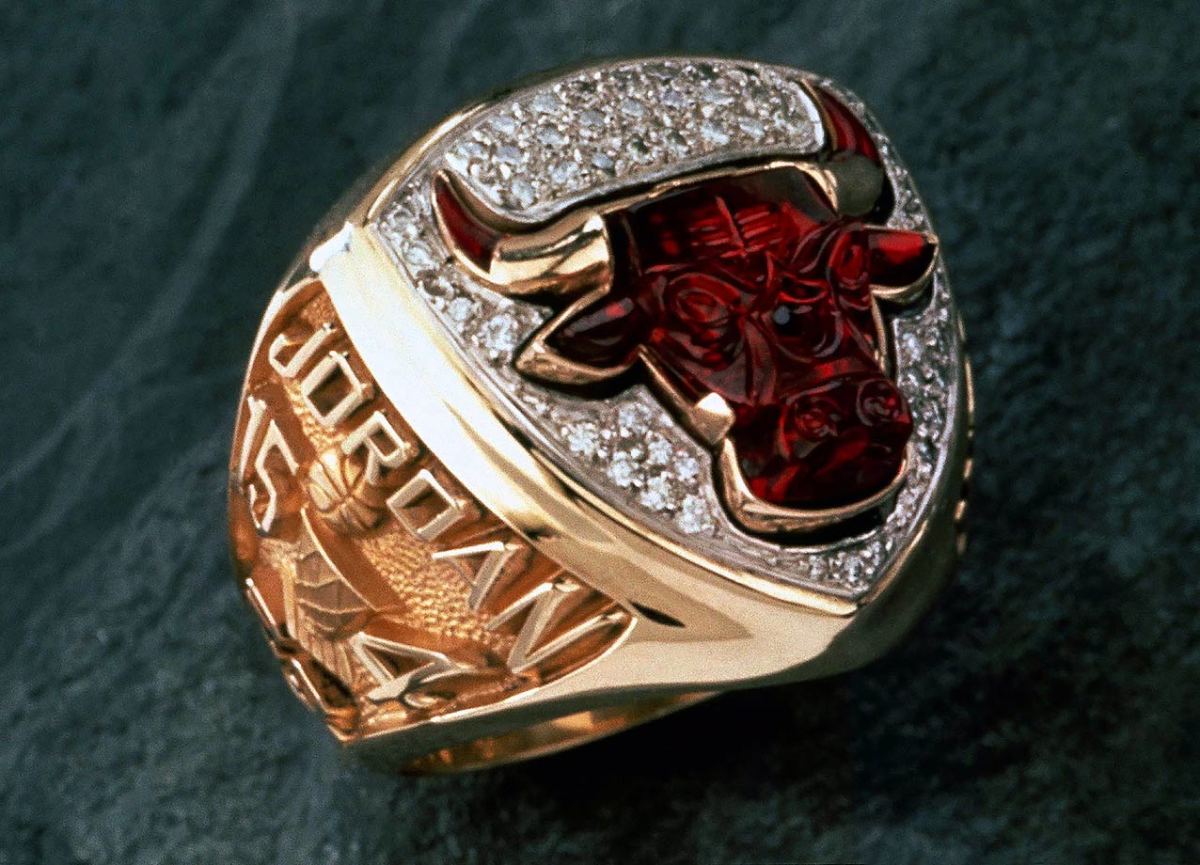
The Bulls became the first team to three-peat since Bill Russell's Celtics in the 1960s. Chicago defeated Phoenix in six games, leaving Charles Barkley without a ring.
1991-92 Chicago Bulls
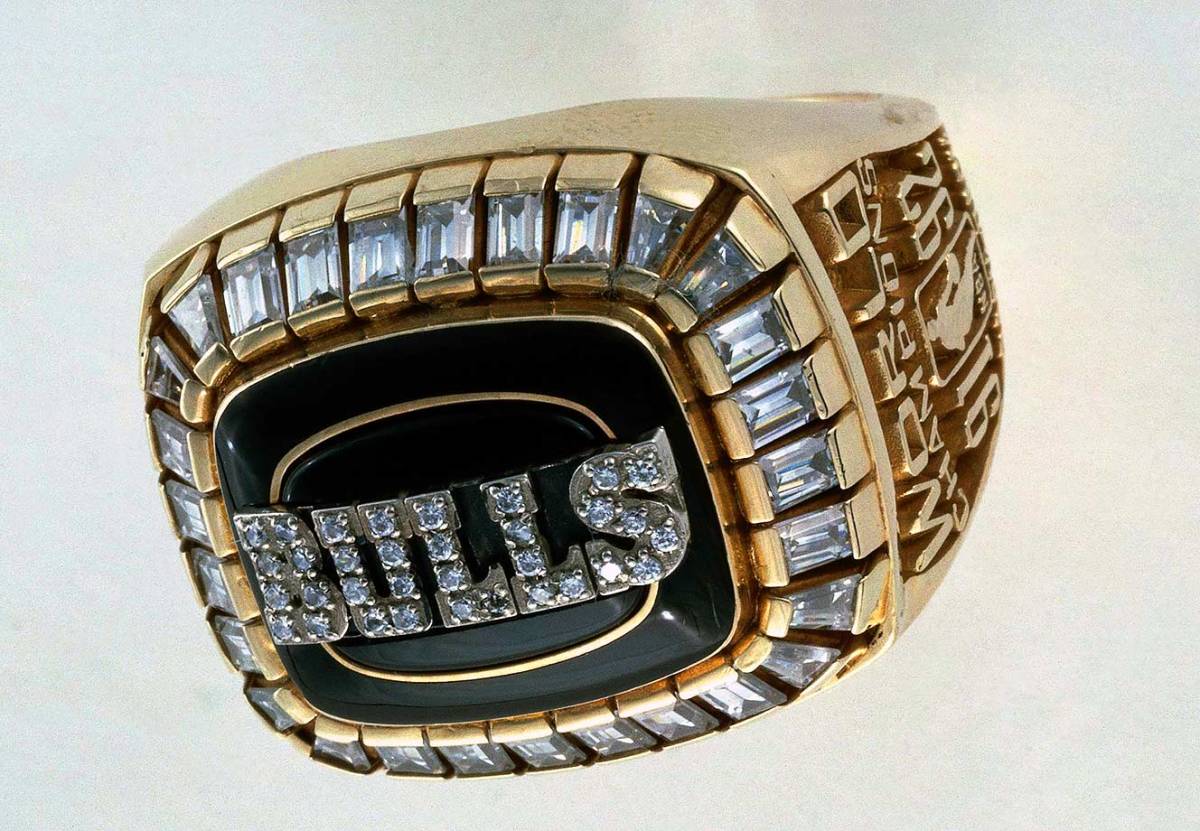
Michael Jordan shrugged his way to a NBA Finals record six first-half three-pointers in Game of 1 of this series, and the Bulls went on to win in six games.
1990-91 Chicago Bulls
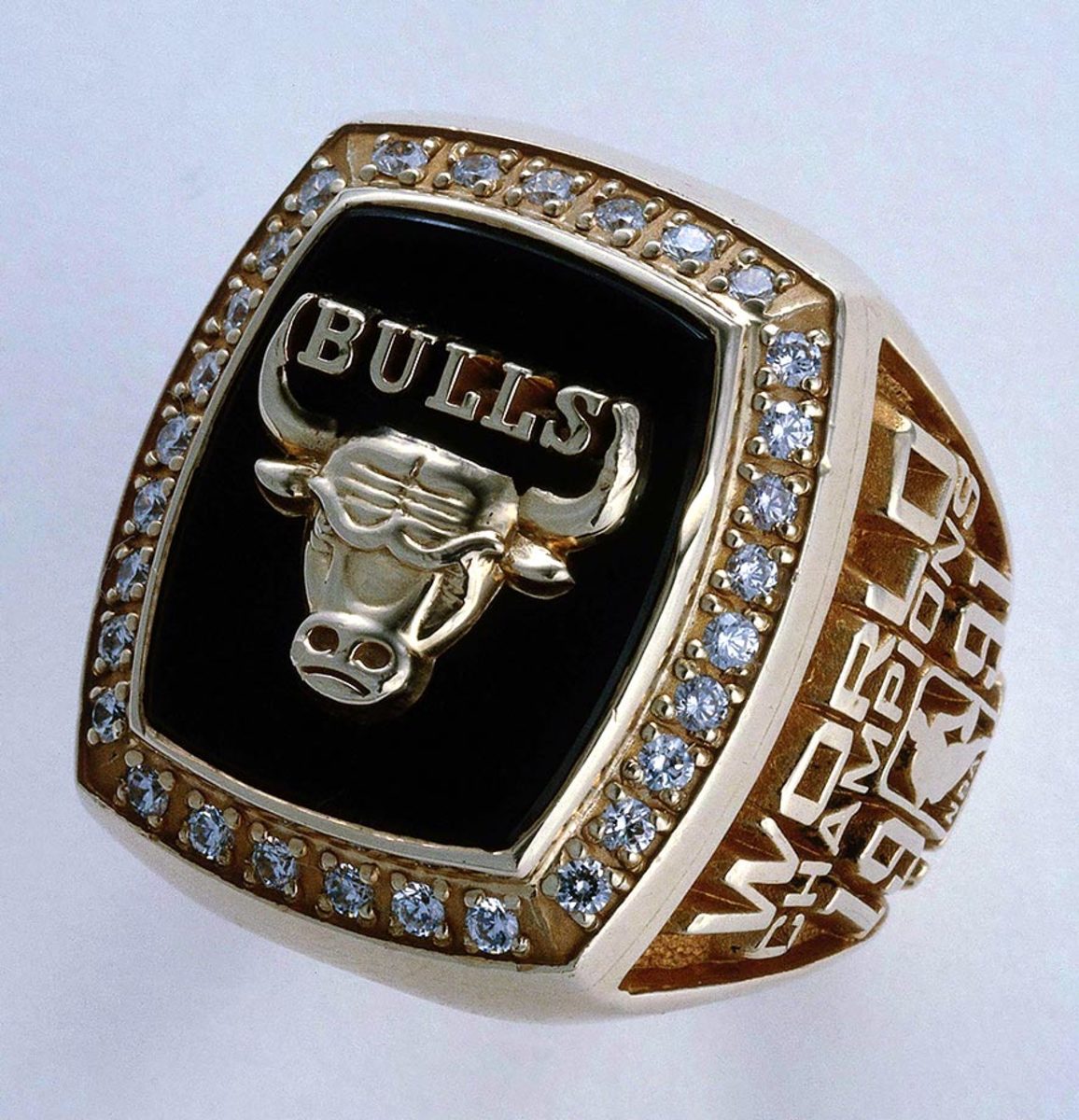
The Bulls recorded their first-ever NBA title as Michael Jordan led the way averaging 31.2 points, 11.4 assists, 2.8 steals and 1.4 blocks to defeat the Showtime Lakers in five games.
1989-90 Detroit PIstons
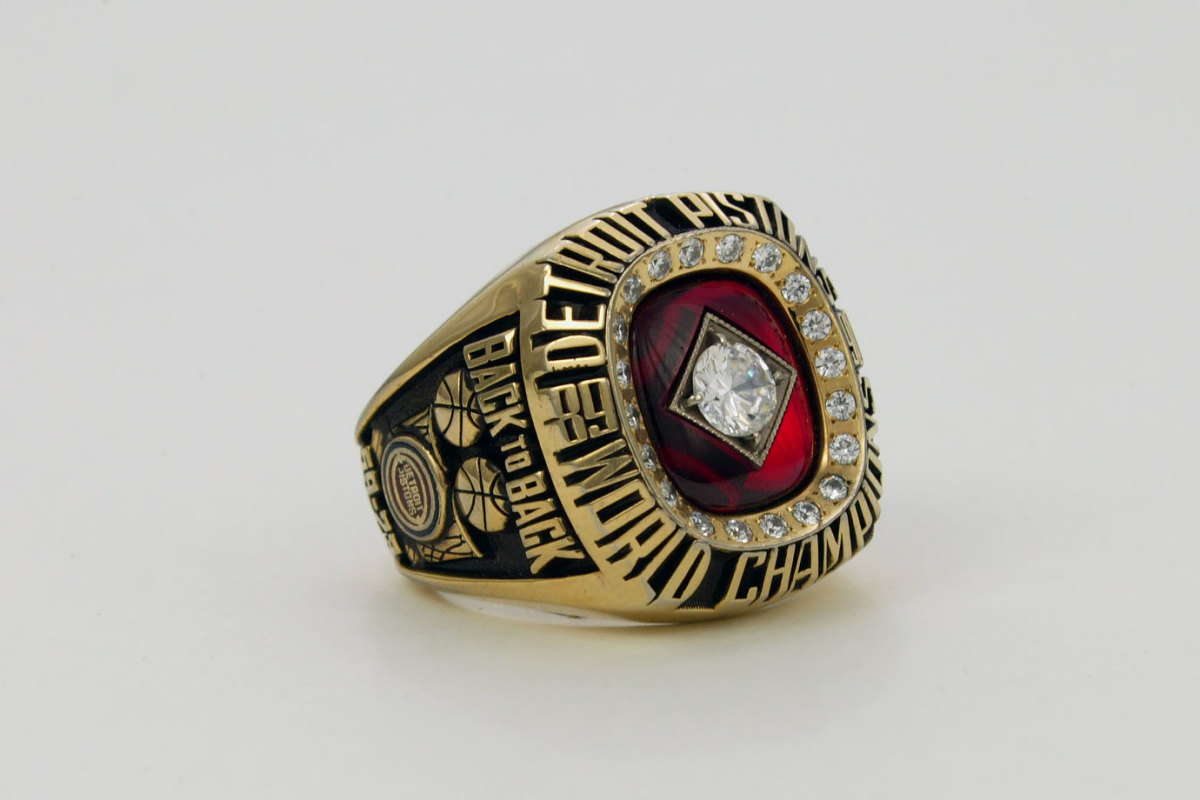
For the first time since 1979, the NBA Finals did not include at least one of the Celtics or the Lakers. The Bad Boy Pistons faced Clyde Drexler and the Trail Blazers, winning in five games for their second straight championship.
1988-89 Detroit PIstons
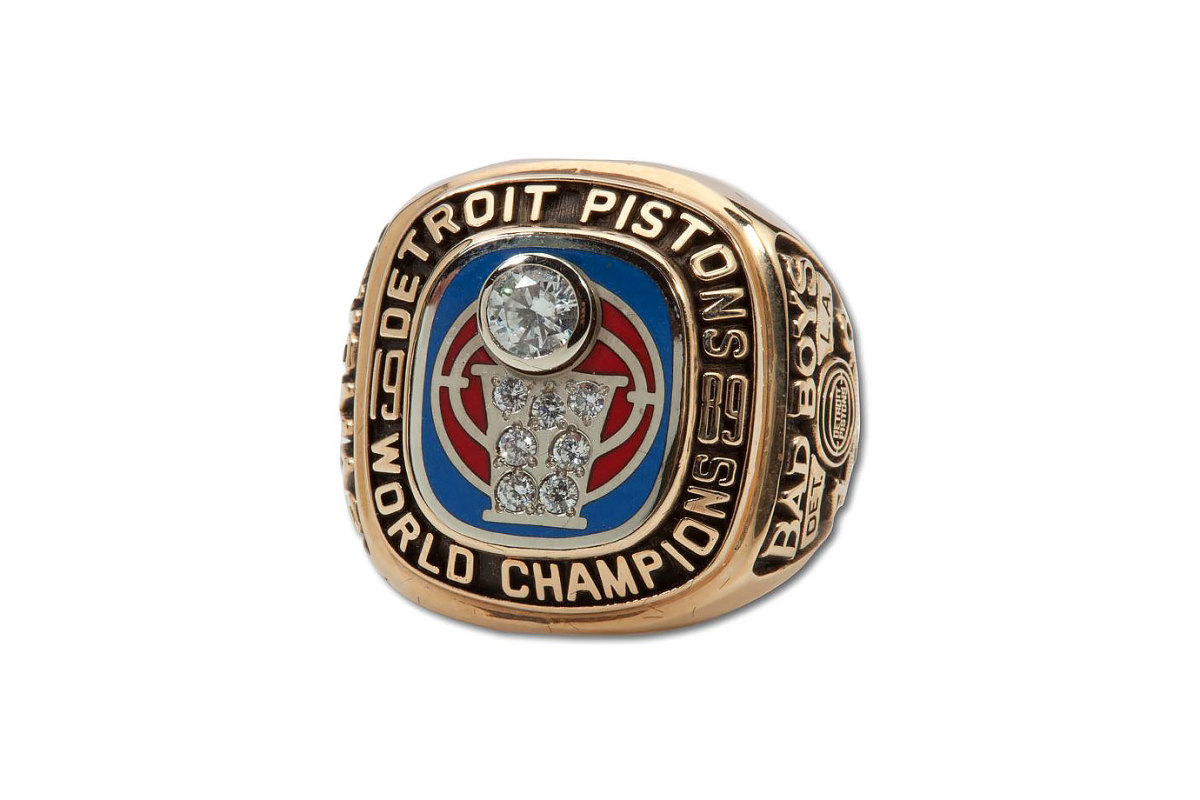
The Lakers led entering the fourth quarter three times during this series but could never hold on as the Pistons swept them in four games.
1987-88 Los Angeles Lakers
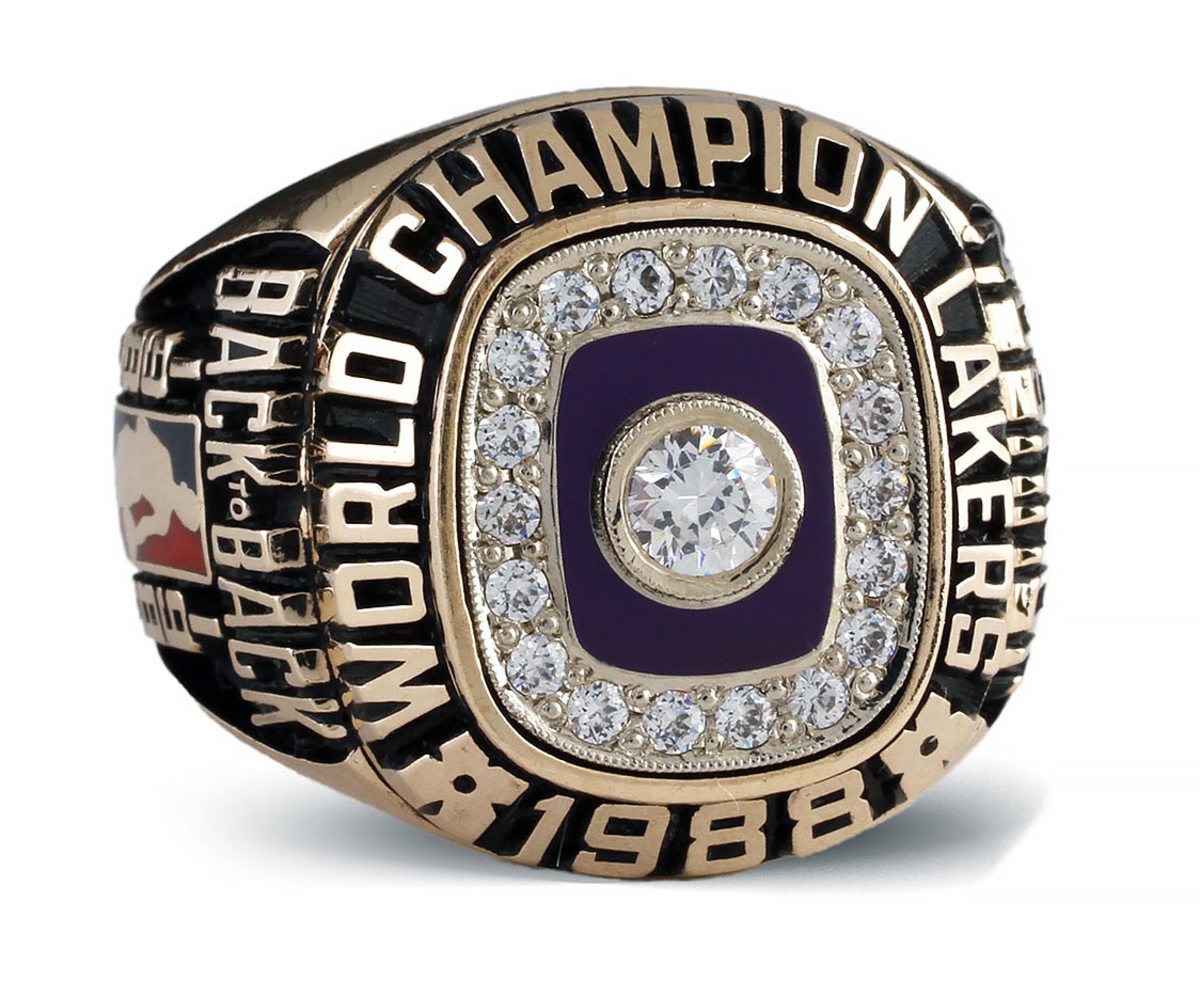
This time, the Lakers got the best of the Pistons in a thrilling seven games series where the final two games were decided by a combined four points.
1986-87 Los Angeles Lakers
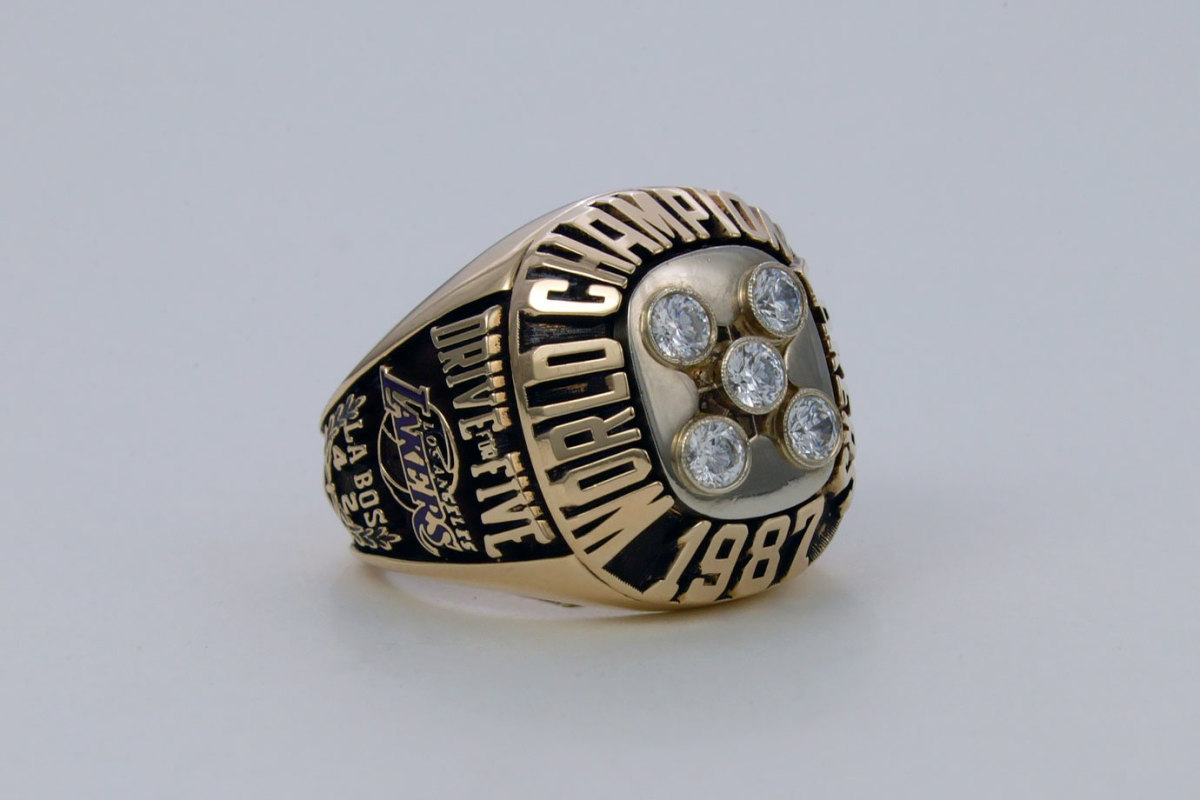
In a high-scoring series, the Lakers and the Celtics each broke the century in the first five games. Then Los Angeles held Boston to 93 points to win the series in Game 6.
1985-86 Boston Celtics
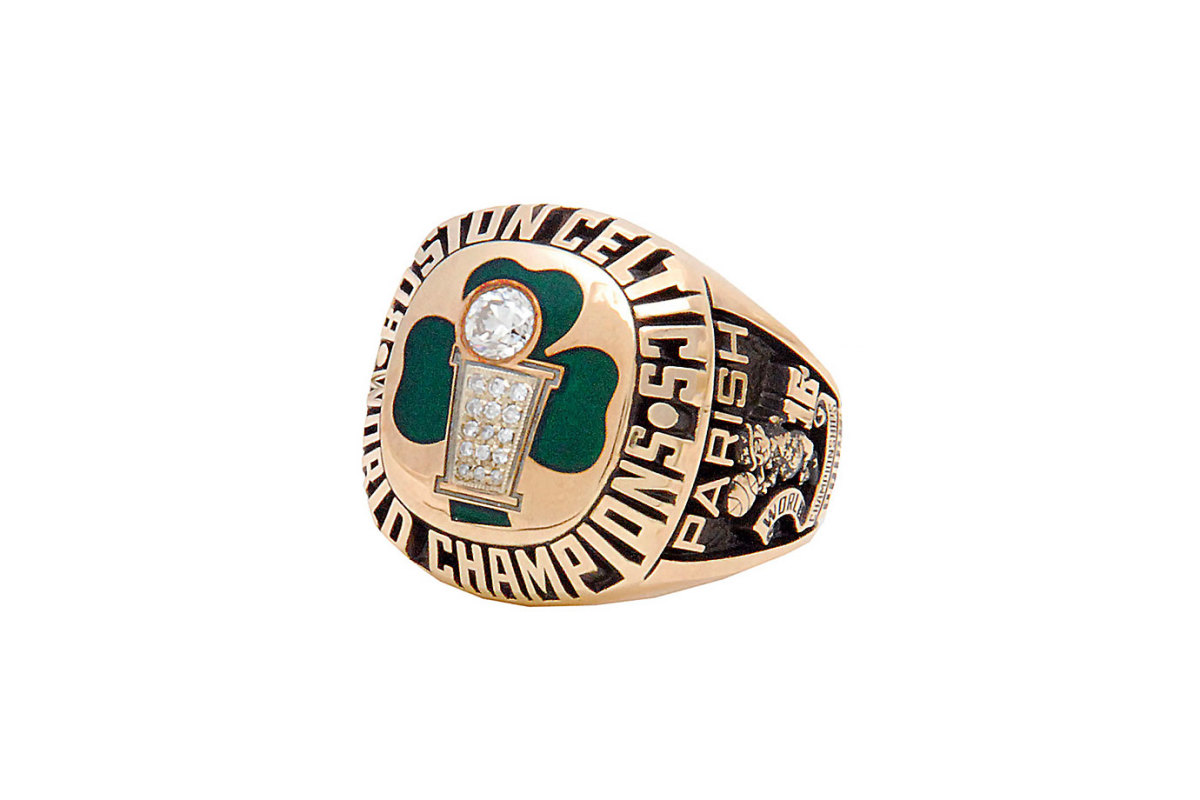
The Celtics captured their second title in three years, defeating the Rockets in six games. Larry Bird fell just shy of averaging a triple with 24 points, 9.7 rebounds and 9.5 assists.
1984-85 Los Angeles Lakers
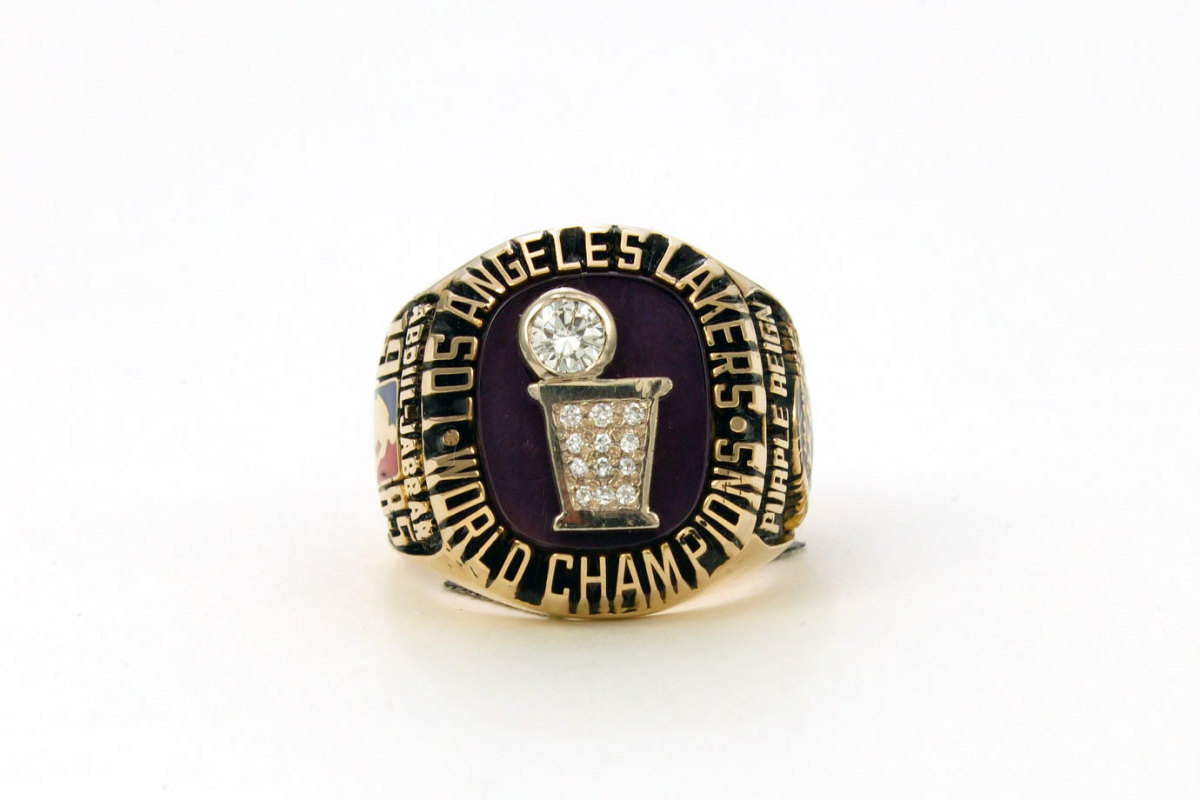
In a series that featured nine Hall of Fame players, the Lakers got revenge from one year earlier with a 4-2 victory against the Celtics.
1983-84 Boston Celtics
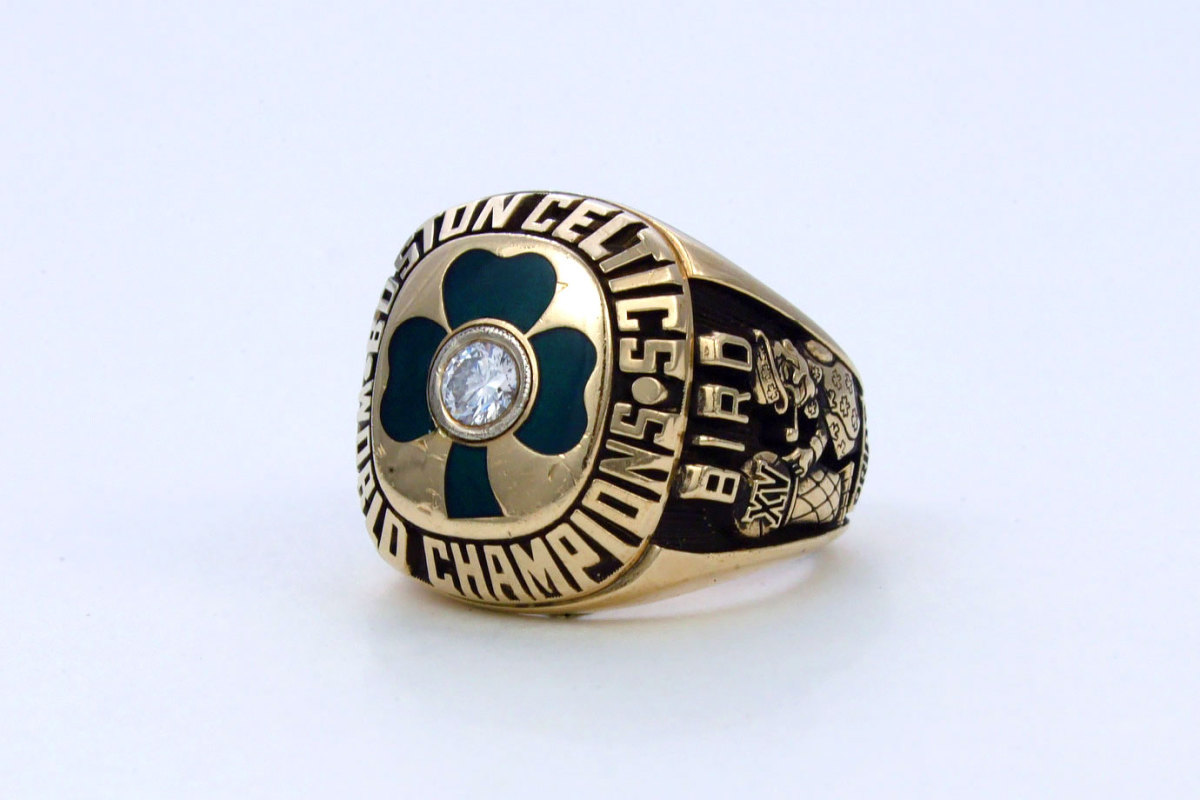
The Celtics came out on top in the first of three 1980s finals meetings with the Lakers. Larry Bird averaged 27.4 points and 14 rebounds, getting the best of Magic Johnson, who's Michigan State team got defeated Bird's Indiana State squad in the 1979 NCAA championship.
1982-83 Philadelphia 76ers
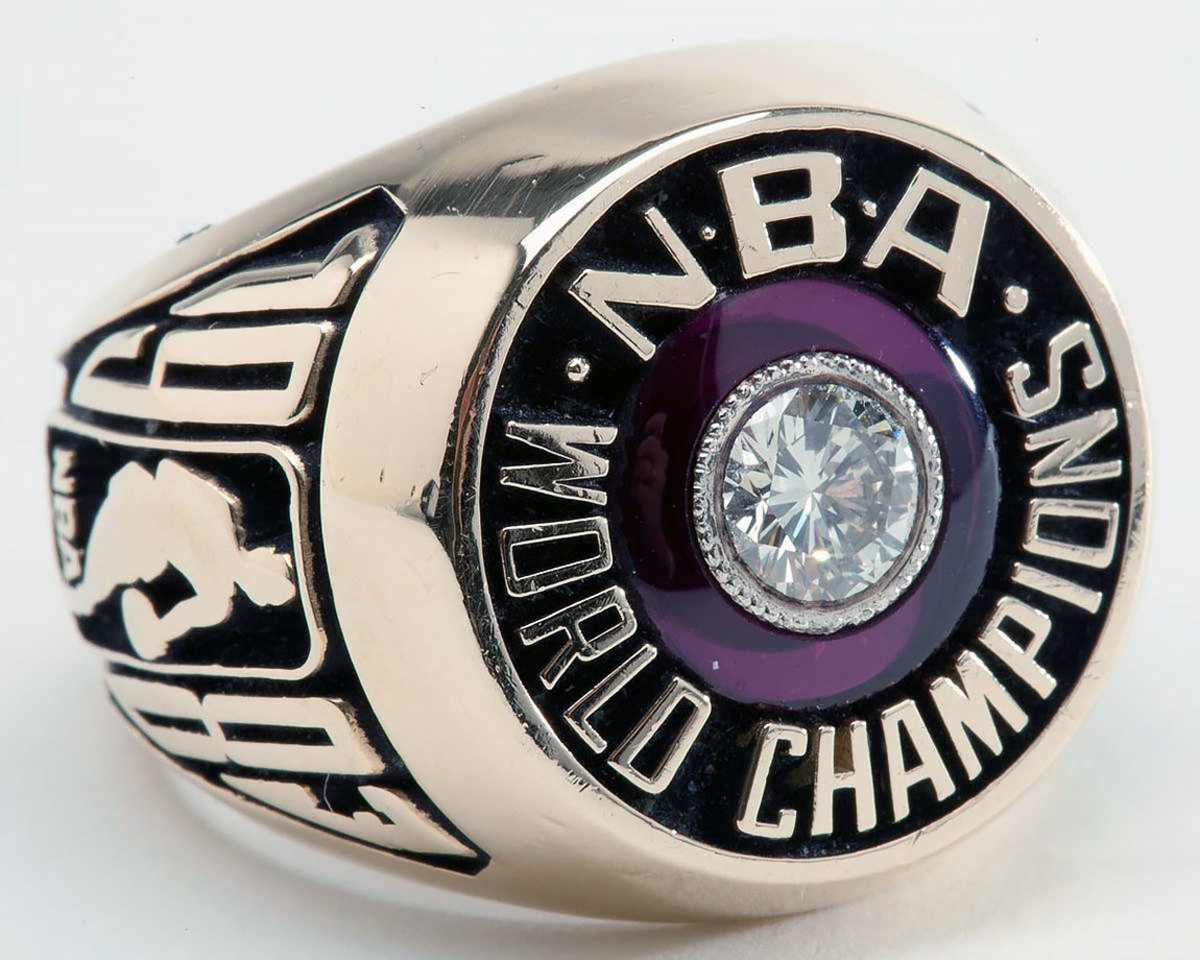
In a rematch of the 1982 finals, Moses Malone tore up the Lakers front line for 25.8 points and 18 rebounds per game as Philadelphia swept Los Angeles.
Oklahoma City can be beaten. Yet to do so would require putting the Thunder defenders in difficult positions, over and over, until their rhythm breaks. Westbrook can be caught gambling and attacked. Kanter can be targeted in the pick-and-roll. More important than any one matchup, though, is that the connective tissue of the Thunder team defense is itself vulnerable to player and ball movement. Dallas simply doesn’t have enough team speed and actual scoring threats to stress test OKC’s rotations in this series. Even if a few tweaks and better breaks were to tack on 20 points or so to the Mavericks’ total, they’d still fall well short of the reasonable thresholds for victory. Limping to 90 or 95 points is of no use against a team with two of the most explosive scorers on the planet and a collection of supporting players who thrive off their creation.
Such is the reality of this series. Carlisle can and will tinker with his lineups, perhaps by finding more time for kinetic rookie forward Justin Anderson or slotting Nowitzki at center. He might alter his team’s overall defensive approach by zoning up the interior and challenging the Thunder role players to fire from outside. Film review could reveal some other seam in the defense worth attacking. There’s room to dabble—even more so now that a blowout tone has been set—and obvious room for improvement. The sum of those changes simply may not matter relative to the full, devastating extent of the Thunder’s advantage.
